
2
Institutional Profile 3 Student Profile………………………………………………………............................................................... 19 Alumni Profile……………………………………………………… 31 Faculty Profile 33 Facilities 38 Research………………………………………………………........................................................................ 45 Community Engagement……………………………………………………………………………….............. 54 Effat College of Humanities 58 Effat College of Business 67 Effat College of Engineering 77 Effat College of Architecture and Design……………………………………………………………………… 86
Table of Content
INSTITUTIONAL PROFILE
History
Effat University is a leading private non-profit institution of higher education for women in Saudi Arabia, operating under the umbrella of King Faisal’s Charitable Foundation Effat University is strengthened by the legacy of its founder, Queen Effat Al- Thunayyan Al-Saud, wife of the late King Faisal Bin Abdualaziz (May God rest their souls)
In 1419 H, (corresponding to 1999 G), it started offering academic programs under the name of Effat College. In order to be a center of academic excellence, Effat College launched different academic programs taught in English to expand the horizons of women in Saudi Arabia and raise their educational level. The first two departments established by the college were Computer Science and Kindergarten These programs aimed to prepare women for the job market and increase their chances of finding work opportunities
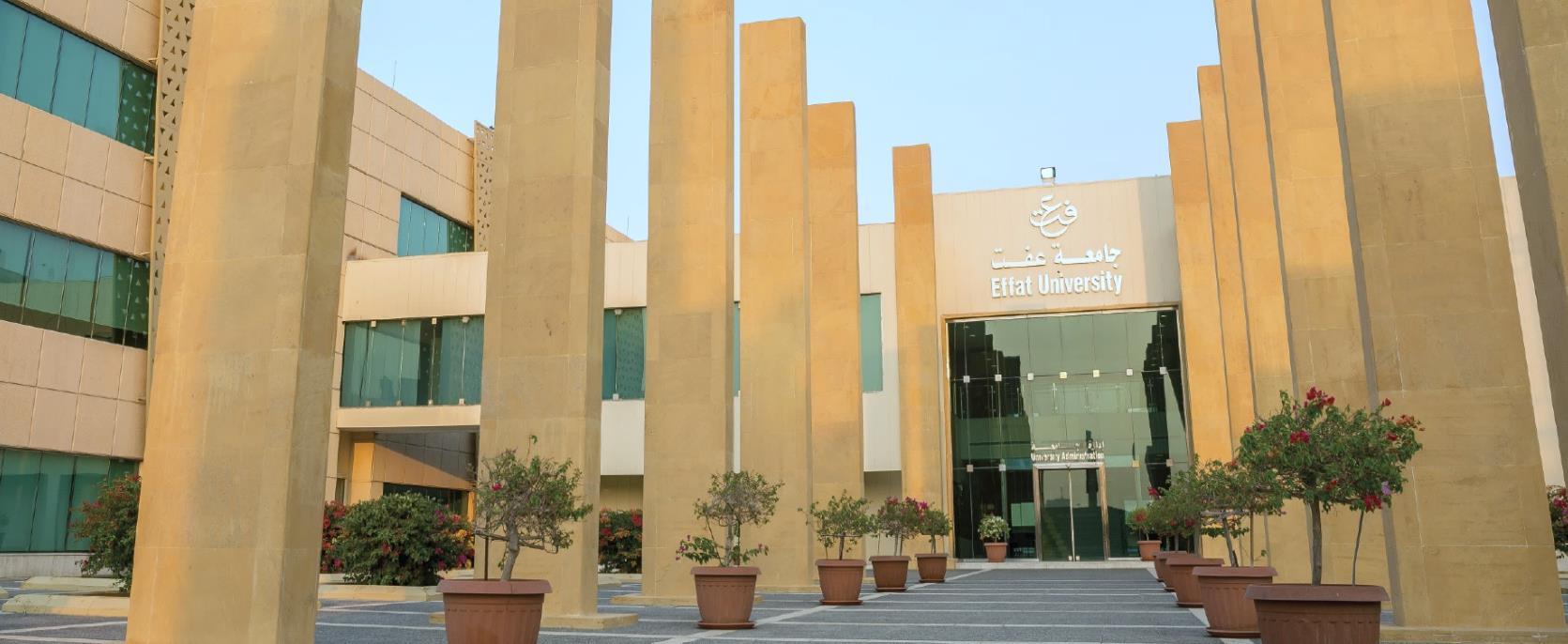
Today, Effat University has further developed to offer 4 graduate degrees and 13 undergraduate degrees under four colleges and 13 departments Some of these programs and their tracks are the first to be offered in the Kingdom to women including undergraduate programs in Cinematic Arts, Entrepreneurship, and Supply Chain Management. A new postgraduate program was also introduced to women in 2017-2018, the Master of Science in Energy Engineering (MSEE). In 2019-2020, Effat University opened its doors to male students in master degree programs

3
Vision
Effat University strives to be recognized as one of the world's leading institutions in scientific discovery and innovation presenting solutions to societal challenges, and to serve as agent of change that advances inspired leaders and scholars in fulfilling Queen Effat Al-Thunayan Al-Saud's vision (God rest her soul).

Mission
Effat University prepares aspirational and effective leaders of international quality who contribute to national and global progress by interweaving Effat University Core Values into an innovative education which creates a culture of broad inquiry, intellectual engagement, and valuable societal impact

4
Goals
Enhance Effat University/s national and international recognition by deepening its presence, impact and contribution to the social, cultural and economic vitality of the Saudi 2030 vision
Stimulate a progressive and dynamic work environment by ensuring effective leadership principles and transparent governance; and enlarge the scope of national and international accreditations and aspire to achieve the goals of the Saudi transformational plan 2020 in getting Effat University ranked as one of the 5 Saudi Universities among the top 200 institutions in the world
Provide an innovative, distinctive, and high quality education, which inspires the students' broad inquiry, intellectual engagement, and service and makes Effat University widely known for its excellence in all its distinctive academic activities; and cultivate broad inquiry and dynamic learning environment that foster creativity among students, faculty, staff and external community through state of-the-art learning and information resources and services
To be at the forefront in attracting and retaining a diverse body of students and continue graduating agents of change through providing a transformative learning experience designed to help graduate entrepreneurs create future opportunities and be ambassadors of Queen Effat Legacy
Maintain and enhance efforts to recruit, nurture, and retain a diverse faculty and staff in order to make the Effat community a place of choice
To provide a sustainable working and learning environment through optimized operation management of the University's information technology and facilities while ensuring safe and attractive campus facilities, and excellent service delivery, that meets the university evolving needs and future growth and achieve and sustain Financial Stability and strength to enhance the University's competitive position
To foster a vibrant, successful and interactive research community that generates ideas and discoveries leading to intellectual property, enterprises, socio-economic prosperity and financial wealth, thereby realizing the objectives and aspirations of the Saudi 2030 vision
Develop and support a culture of service through national and international long term productive partnerships and collaborations that support the community and strengthen the university

1. 5 2. 3. 4. 5. 6. 7. 8.

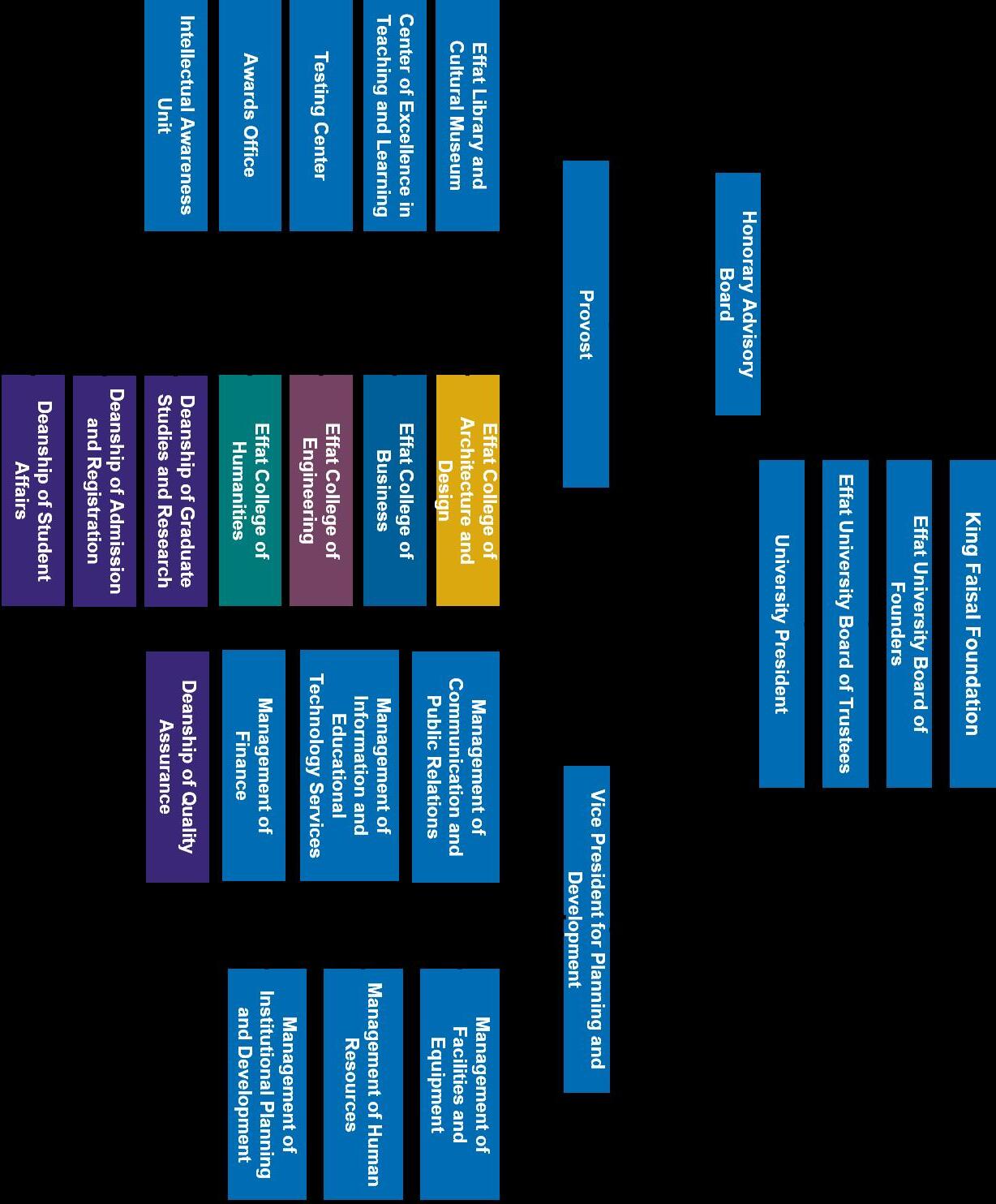
6 Organizational Structure
Office
Academic Offices
Unit Head Name
Provost Office Provost Dr. Mervat Chouman
Effat College of Architecture and Design

Dean Dr. Asmaa Ibrahim
Architecture Department Acting Chair Dr. Asmaa Ibrahim
Design Department Chair Dr. Sajid Khalifa
Cinematic Arts School Chair Dr. Mohamed Ghazala
Effat College of Humanities Dean Dr. Linda Maloul
English and Translation Department Chair Dr. Ranya Elie Salame
Psychology Department Chair Dr. Tabassum Rashid
General Education Program Chair Dr. Khadija Itani
Effat English Academy Coordinator Dr. Pakenam Shiha
Effat College of Engineering Dean Dr. Akila Sarirete
Computer Science Department Chair Dr. Zain Balfagih
Electrical and Computer Engineering Department Chair Dr. Enfel Barakat
Effat College of Business Dean Dr. Imen Nouira
Entrepreneurship Department Chair Dr. Manzar Ahmed
Finance Department Chair Dr. Tahar Tayachi
Human Resources Management Department Chair Dr. Uzma Javed
Marketing Department Chair Dr. Manzar Ahmed
Supply Chain Management Department Chair Dr. AbdulAziz AlMaktoum
7
Administrative Offices
Office Head Person in-Charge
President Office President Dr. Haifa Jamal Al-Lail
Vice-Presidency of Planning and Development
Acting Vice President
Deanship of Admissions and Registration Dean
Deanship for Student Affairs
Acting Dean
Dr. Haifa Jamal Al-Lail
Dr. Amani Gandour
Dr. Amani Gandour
Deanship of Quality Assurance Dean Dr. Eman Mohamed
Deanship for Graduate Studies & Research
Management of Human Resources
Management of Finance
Management of Communications & Public Relations
Management of Informationand Educational Technology Services, Facilities and Equipment and General Services
Vice-Dean Prof. Mady Mohamed
Director-General
Director-General
Assistant Director
Director-General
Management of Facilities & Equipment, Building and Grounds Director
Management of Facilities & Equipment, Maintenance and Operations Director
Effat Library and Cultural Museum
Testing Center
Director
Assistant Manager
Ms. Abeer Islam
Ms. Shatha Edrees
Ms. Maha Al-Madi
Ms. Moodi Al Saib
Mr. Rushdy Al Azzah
Eng. Ernie Geslani
Dr. Ayman S. Eddakrouri
Ms. Yara S. Khoja

8
Institutional Accreditation (National)


Effat University received institutional accreditation among the first six public and private universities receiving the first ever accreditation conferred by NCAAA After acquiring national accreditation/reaccreditation for all its bachelor degrees that are eligible for accreditation, Effat University was one of the very few universities that acquired national accreditation for its master degrees - Master of Science in Translation Studies (Now known as Master of Science in Translation and Interpreting), Master of Science in Finance and Master of Science in Urban Design

9
Institutional Accreditation (International)

Effat University is currently pursuing international accreditation for the institution through the New England Commission of Higher Education (NECHE).
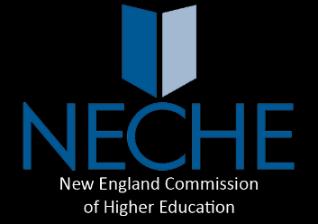
Programs Accreditation (International)
In 2016-2017, the Effat College of Engineering obtained international accreditation from the Accreditation Board for Engineering and Technology (ABET). The ABET accreditation for the three programs; Electrical and Computer Engineering, Computer Science, and Information Systems extends from 2015 to 2023.
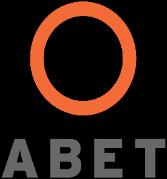
Effat University, Department of Architecture has received the International Certification designation from the National Architectural Accrediting Board (NAAB) for the Bachelor of Science in Architecture ICert was granted in 2019 for a term of six years.
In 2021, the Effat College of Business obtained international accreditation from Association to Advance Collegiate Schools of Business (AACSB) for five years

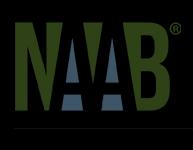

11
Programs Accreditation (National)

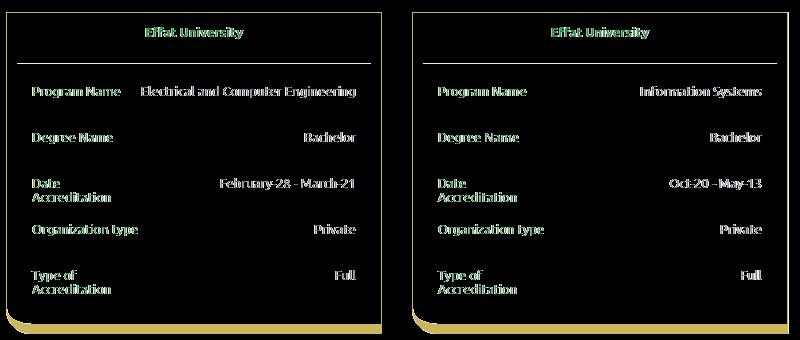
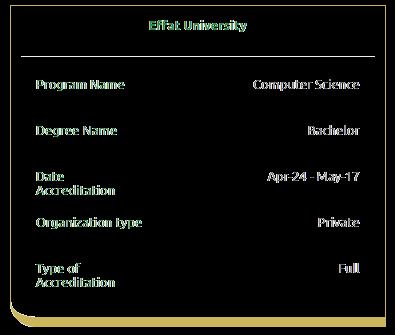
 Effat College of Engineering
Effat College of Engineering
Programs Accreditation (National)




Effat College of Business

13
Programs Accreditation (National)

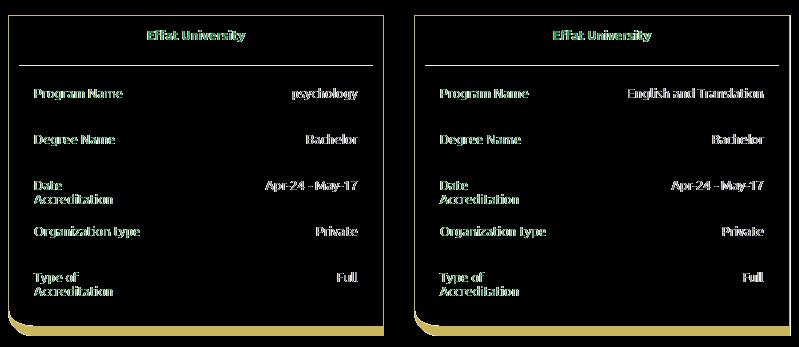
Effat College of Humanities
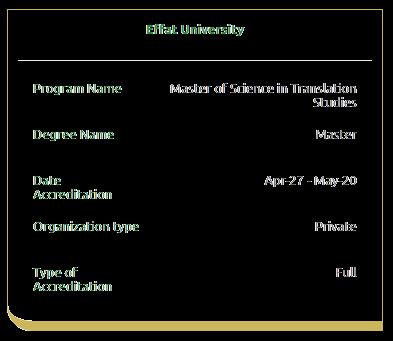

14
Programs Accreditation (National)



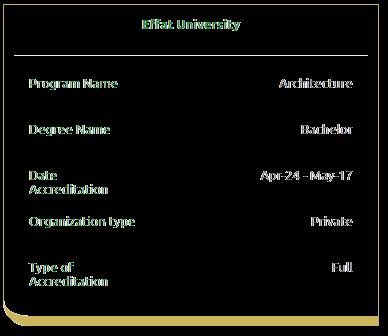
Effat College of Architecture

15
Ranking
Arab Region Rankings
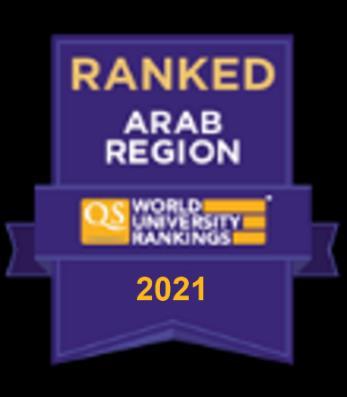
The QS ranking comprises world and subject rankings (which name the world's top universities for the study of 46 different subjects and five composite faculty areas), alongside five independent regional rankings (i.e. Asia, Latin America, Emerging Europe and CentralAsia, BRICS and the Arab Region)

In 2017-2018, Effat University was ranked among the top 100 best Universities in the Arab Region. For the year 2022, Effat University was ranked #61 – 70. This is an indication that Effat University is making a mark on the regional community
The Times Higher Education(THE) Arab University Rankings, introduced in 2021 demonstrates the strength of higher education across the region for the first time based on a unique methodology including new regional measures on reputation and collaboration, as well as the inclusion of metrics related to social impact, reflecting the focuses of Arab universities. In this inaugural ranking, Effat University was ranked #71 – 80.
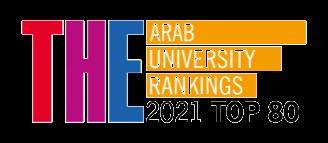
2018 2019 2020 2021 2021 #81 - 90 #101 - 110 #81 - 90 #81 - 90 #61 - 70
Effat rate

Rating grouped total scoring stars

Rating

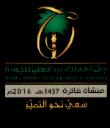
King Quality reference according compete large institutions Following review academic King
Awards
STUDENT PROFILE

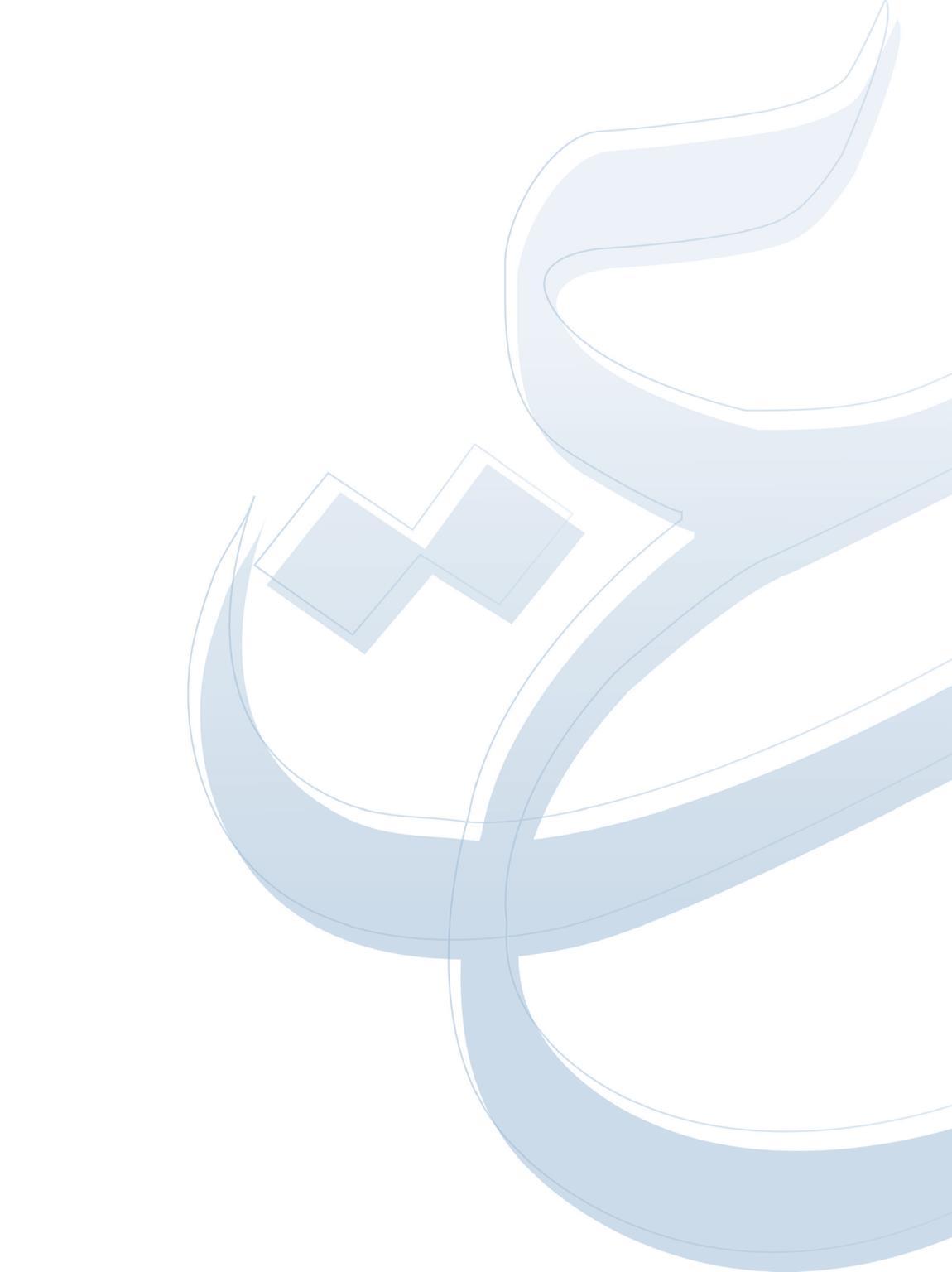
New Student Enrolment
*Main intake is during the Fall semester, in correspondence to the end of the high schools’ and colleges’ calendar

Admissions Data Fall 2019 Spring 2020 20192020 Fall 2020 Spring 2021 20202021 Total Number of Applications Received 797 489 1286 1417 110 1527 Total Number of Admitted Students 262 78 340 449 68 517 Total Number of Enrolled Students 172 31 203 345 53 398 Total Number of Transfer Students 8 0 8 8 2 10 Acceptance Rate (#admitted / #applied) 33% 16% 26% 32% 62% 34% Enrolment Yield (#enrolled / #admitted) 66% 40% 60% 77% 78% 77%
Admissions Data Fall 2019 Spring 2020 20192020 Fall 2020 Spring 2021 20202021 Total Number of Applications Received 185 165 350 172 1 173 Total Number of Admitted Students 55 21 76 55 1 56 Total Number of Enrolled Students 47 2 49 48 0 48 Total Number of Transfer Students 0 0 0 0 0 0 Acceptance Rate (#admitted / #applied) 30% 13% 22% 32% 100% 32% Enrolment Yield (#enrolled / #admitted) 86% 10% 65% 87% 0% 86%
Undergraduate Students
Postgraduate Students
20
Academic Year 2020-2021 compared to 2019-2020


21 Historical Student Enrolment
*Including Number of Students in Foundation Level, Leave of Absence and Pending Graduation Students.


Historical Student Enrolment 22

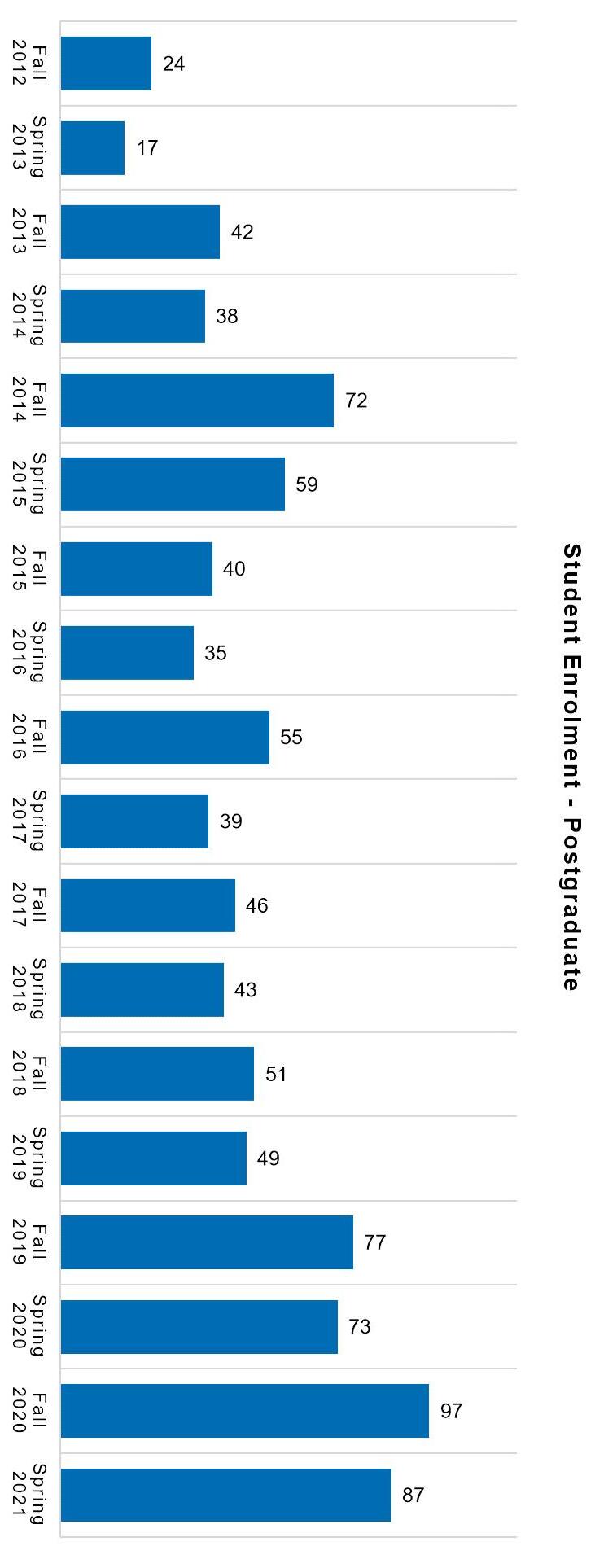
23 Historical Student Enrolment
Student Enrolment by Level
*Including Number of Students in Foundation Level, Leave of Absence and Pending Graduation Students.

Headcount Enrolment by level Fall 2019 Spring 2020 Fall 2020 Spring 2021 Foundation 99 72 192 148 Freshmen 165 200 309 179 Sophomore 141 140 175 202 Junior 129 125 113 176 Senior 705 457 292 278 Master 77 73 97 87 Overall 1316 1067 1178 1070 24
Headcount Enrolment Fall 2019 Spring 2020 Fall 2020 Spring 2021 Undergraduate* 1239 994 1081 983 Postgraduate 77 73 97 87 Overall 1316 1067 1178 1070 Academic Year 2020-2021 compared to 2019-2020
Student Enrolment by Colleges

Academic Year 2020-2021 compared to 2019-2020
*Including Number of Students in Foundation Level, Leave of Absence and Pending Graduation Students.
*Including Number of Students in Foundation Level, Leave of Absence and Pending Graduation Students.
Enrolment Headcount Undergraduate Enrolments by Colleges Fall 2019 Spring 2020 Fall 2020 Spring 2021 Effat College of Humanities 179 135 151 133 Effat College of Architecture and Design 556 453 442 395 Effat College of Business 293 233 270 246 Effat College of Engineering 211 173 218 209 Overall 1239 994 1081 983 Enrolment Headcount Graduate Enrolments by Colleges Fall 2019 Spring 2020 Fall 2020 Spring 2021 Effat College of Humanities 16 14 16 15 Effat College of Architecture and Design 24 23 34 29 Effat College of Business 21 21 29 25 Effat College of Engineering 16 15 18 18 Overall 77 73 97 87 25
Enrolment Headcount Overall (Undergraduate & Graduate) Enrolments by Colleges Fall 2019 Spring 2020 Fall 2020 Spring 2021 Effat College of Humanities 195 149 167 148 Effat College of Architecture and Design 580 476 476 424 Effat College of Business 314 254 299 271 Effat College of Engineering 227 188 236 227 Overall 1316 1067 1178 1070
*Including Number of Students in Foundation Level, Leave of Absence and Pending Graduation Students.
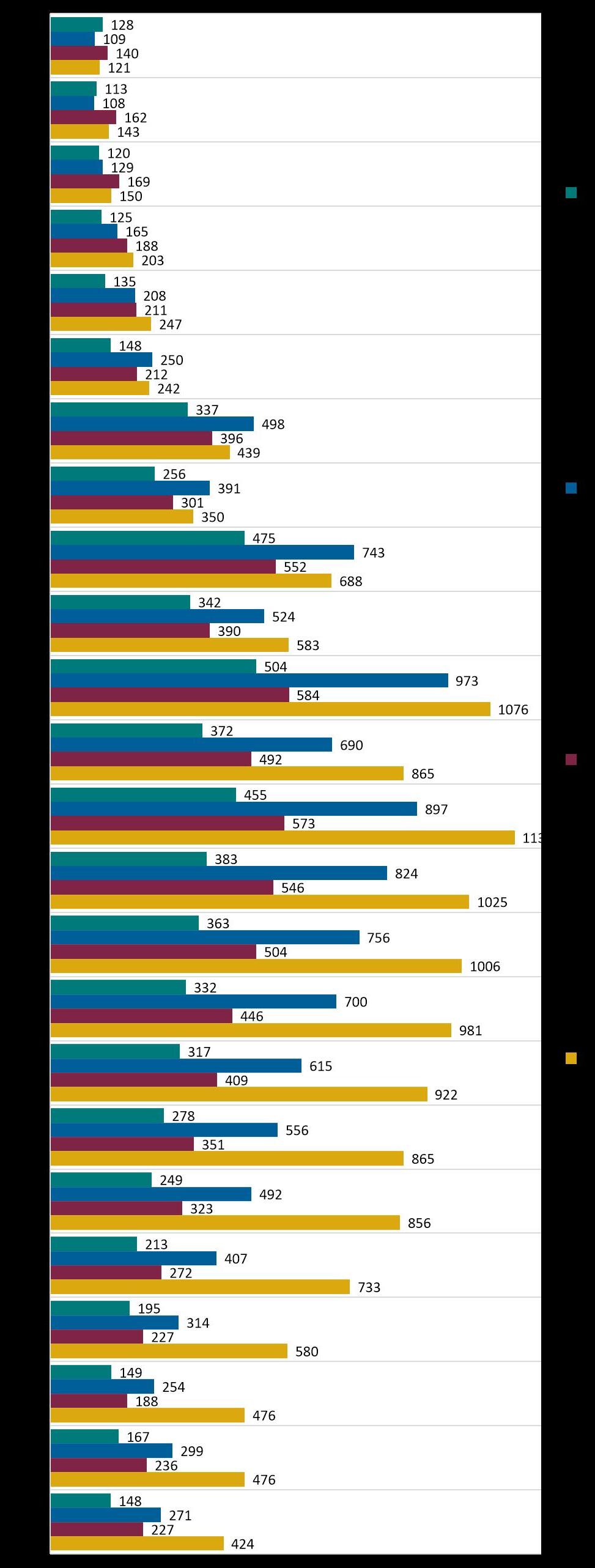

Historical Student
26
Enrolment by Colleges
New Student Enrolment by Nationality
Academic Year 2020-2021 compared to 2019-2020
Overall Student Enrolment by Nationality per College
Academic Year 2020-2021 compared to 2019-2020
*Including Number of Students in Foundation Level, Leave of Absence and Pending Graduation Students.

Undergraduate Admissions Data Fall 2019 Spring 2020 20192020 Fall 2020 Spring 2021 20202021 Total Number of Saudi (Newly Enrolled) 105 15 120 214 27 241 Total Number of Non - Saudi (Newly Enrolled) 67 16 83 131 26 157 Graduate Admissions Data Fall 2019 Spring 2020 20192020 Fall 2020 Spring 2021 2020 –2021 Total Number of Saudi (Newly Enrolled) 37 2 39 37 0 37 Total Number of Non - Saudi (Newly Enrolled) 10 0 10 11 0 11 27
2019 - 2020 2020 - 2021 Internationalization Saudi Non-Saudi Saudi Non-Saudi Effat College of Humanities 90 59 97 51 Effat College of Architecture and Design 381 95 286 138 Effat College of Business 185 69 188 83 Effat College of Engineering 134 54 134 93 Overall 790 277 705 365
Historical Overall Student Internationalization

28
89 % 88 % 87 % 87 % 86.97 % 86.78 % 85.52 % 84 % 78 % 74 % 67 % 65.89 % 11 % 12 % 13 % 13 % 13.03 % 13.22 % 14.48 % 16 % 22 % 26 % 33 % 34.11 % Fall 2015 Spring 2016 Fall 2016 Spring 2017 Fall 2017 Spring 2018 Fall 2018 Spring 2019 Fall 2019 Spring 2020 Fall 2020 Spring 2021 Saudi Non-Saudi
New Student Enrolment by Gender

Undergraduate Admissions Data Fall 2019 Spring 2020 20192020 Fall 2020 Spring 2021 20202021 Total Number of Male (Newly Enrolled) 0 0 0 0 0 0 Total Number of Female (Newly Enrolled) 172 31 203 345 53 398 Graduate Admissions Data Fall 2019 Spring 2020 20192020 Fall 2020 Spring 2021 20202021 Total Number of Male (Newly Enrolled) 10 0 10 5 0 5 Total Number of Female (Newly Enrolled) 37 2 39 43 0 43 29
Academic Year 2020-2021 compared to 2019-2020
Historical Number of Graduates

30
72 45 103 121 162 151 274 419 578 782 512 241 20092010 20102011 20112012 20122013 20132014 20142015 20152016 20162017 20172018 20182019 20192020 20202021
Alumni Status

31
Overall Alumni Status 2003 - Fall 2020 Alumnae Status Number Percentage Participation Rate Employability Rates Working 1773 50% 50% 67% Studying 156 4% 4% 6% Seeking Job 728 21% 21% 27% Total 2657 Not Reachable 678 19% Not WorkingBy Choice 191 5% 5% Deceased 2 0.1% Overall Total 3528 73%
ALUMNI PROFILE
STUDENT SUCCESS
Selected Measures of Student Success

32
Selected Measures of Students’ Success 2019-2020 2020-2021 First Year Retention Rate 96% 96% Graduation/Completion rate 65% 60% % of Students Who Graduated with above 3.00 GPA 64% 65% Employment Rate 68% 67% Enrolment of Effat Alumni in Graduate Studies 7% 6%
FACULTY PROFILE

ACADEMIC STAFF PROFILE
Academic Degree Programs

Note: The faculty profile consists of teaching staff who have served at least 1 semester in 2020/2021
Note: The faculty profile consists of teaching staff who have served at least1 semester in 2020/2021
34
Ranks Faculty Full Time Part Time Saudi Non-Saudi Male Female # % # % # % # % # % # % # % Professorial Rank Professor 15 15.6% 12 80% 3 20% 0 0% 15 100% 11 73.3% 4 26.7% Associate Professor 12 12.5% 10 83.3% 2 16.7% 1 8.3% 11 91.7% 8 66.7% 4 33.3% Assistant Professor 45 46.9% 37 82.2% 8 17.8% 10 22.2% 35 77.8% 23 51.1% 22 48.9% NonProfessorial Rank Lecturer 14 14.6% 6 42.9% 8 57% 4 28.6% 10 71.4% 3 21.4% 11 78.6% Instructor 10 10.4% 2 20% 8 80% 2 20% 8 80% 2 20% 8 80% Grand-Total 96 100% 67 69.8% 29 30.2% 17 17.7% 79 82.3% 47 49% 49 51% Ranks Faculty Full Time Part Time Saudi NonSaudi Male Female # % # % # % # % # % # % # % Effat English Academy Assistant Professor 4 19.1% 1 25% 3 75% 3 75% 1 25% 2 50% 2 50% Instructor 15 71.4% 0 0% 15 100% 9 60% 6 40% 1 6.7% 14 93.3% PACCE Instructor 2 9.5% 0 0% 2 100% 1 50% 1 50% 0 0% 2 100% Grand-Total 21 100% 1 4.8% 20 95.2% 13 61.9% 8 38.1% 3 14.3% 18 85.7%
2020-2021 Effat English Academy & HRH Princess Al Bandari Bint Abdulrahman Al Faisal Center for Civic Engagement (PACCE)
Faculty Profile

35
70% 30% Academic Staff Full Time vs Part Time Full Time Part Time 88% 12% Academic Staff PhD vs Non-PhD (Full Time) PhD Non-PhD 18% 82% Academic Staff Saudi vs Non-Saudi Saudi Non-Saudi 16% 12% 47% 25% Faculty Rank Professor Associate Professor Assistant Professor Lecturer & Instructor 49% 51% Academic Staff Gender Male Female
Faculty to Student Ratio

Fall 2020 Spring 2021 No of Students No of Faculty Members FacultyStudent Ratio No of Students No of Faculty Members FacultyStudent Ratio Institution* 1178 110 1:11 1070 81 1:13 College of Humanities 151 25 1:06 139 25 1:06 College of Business 244 16 1:15 230 15 1:15 College of Engineering 191 21 1:09 189 14 1:14 College of Architecture & Design 400 29 1:14 366 19 1:19 36
*Including Number of Students & Teaching Staff in the Foundation Program

37
Full Time vs Part Time Saudi vs NonSaudi Rank Department Admin Full Time Part Time Saudi NonSaudi PhD MasterBachelor Other Office of the President 4 4 0 2 2 1 1 2 0 Institutional Advancement 1 1 0 1 0 0 0 1 0 Office of the Vice Chair of the Board of Trustees & General Supervisor of Effat University 2 2 0 2 0 0 0 1 1 Officeof the Provost 3 3 0 3 0 0 2 1 0 Center of Excellence for Teaching & Learning 1 1 0 1 0 0 0 1 0 Management of Communication & Public Relation 6 6 0 5 1 0 2 4 0 Deanship of Admission & Registration 6 6 0 6 0 0 2 4 0 Deanship of Student Affairs 3 3 0 3 0 0 2 1 0 Medical Clinic 1 1 0 0 1 0 0 1 0 Deanship of Graduate Studies & Research 2 2 0 1 1 0 1 1 0 Testing Center 4 4 0 4 0 0 2 2 0 Effat Library & Cultural Museum 5 5 0 2 3 1 2 2 0 College of Humanities 1 1 0 1 0 0 0 1 0 College of Business 1 1 0 1 0 0 1 0 0 College of Architecture and Design 2 2 0 0 2 0 1 0 1 College of Engineering 2 2 0 2 0 0 1 1 0 Management of Information& Educational Technology Services 9 9 0 5 4 0 4 5 0 Management of Finance 6 6 0 5 1 0 6 0 0 Management of Purchasing & Inventory 2 2 0 2 0 0 0 1 1 Management of Human Resources 7 7 0 7 0 0 4 3 0 Total 68 68 0 53 15 2 31 32 3 Administration
STAFF PROFILE
FACILITIES, EQUIPMENT AND LEARNING RESOURCES


Campus Infrastructure
Academic Buildings
General Shared Facilities

Effat Campus Area Total Land Area 80,922 sq. m (870,720.72 sq.ft.) Total Land and Building Area 132,527 sq. m 1,425,990.52sq.ft.) Academic Building Area Capacity Effat College of Engineering 9,943 sq. m. (106,971 sq.ft.) 1591 Effat College of Business 5,377 sq. m. (57,856 sq.ft.) 1519 Effat College of Architecture and Design 4, 645 sq. m. (49,980 sq.ft.) 366 Effat College of Architecture and Design-2 6,594 sq. m. (70,951 sq.ft.) 683 General Shared Facilities Area Capacity Effat Library and Cultural Museum 6,986 sq. m (75,158 sq.ft.) 800 Mosque 218 sq. m (2,345 sq.ft.) 100 Effat Hall 4,485 sq. m (48,251 sq.ft.) 700 Restaurant 3,488 sq. m (37,525 sq.ft.) 800 Residence (1) 10,761 sq. m (115,788.36 sq.ft.) 77 Residence (2) 9,414 sq.m (101,280 sq. ft) 119 Administration Building 1,695 sq. m (18,235 sq.ft.) 85 Deanship of Student Affairs 9,531 sq. m (102,538 sq.ft.) 576 Deanship of Graduate Studies and Research 748 sq. m (8,049 sq.ft) 120 Admission and Registration 6,047 sq. m (65,066 sq.ft) 160 Maintenance 1,710 sq. m (18,400 sq.ft) 14 39
Offices
Sport Facilities

Offices Area Number Capacity Number of Single Offices – Administrative Staff 1385.8 sq. m (ave: 8.2 sq.m) 169 169 Number of Single Office – Faculty 1140 sq. m (ave: 9.5 sq.m) 162 162 Number of Shared Offices – Administrative Staff 229.6 sq. m (ave: 16.4 sq.m) 14 25 Number of Shared Offices – Faculty 94 sq. m (ave:18.8 sq.m) 5 12 Sports Facilities Area Capacity Indoor Swimming Pool 500 cubic meter / 25m x 12.5m Indoor Gymnasium Size and Capacity 150 sq meters 25 Indoor Basketball Court Size and Capacity 970 sq meters 200 Indoor Jogging/Running Track Size 70 meters per lap Lecture Halls Area Number Capacity Number of Classrooms 2,704 sq. m (ave: 52 sq. m) 52 1770 Number of Studios 2,730 sq. m (ave: 70 sq. m) 27 780 Number of General Computer Labs 480 sq. m (ave: 60 sq. m) 8 107 Number of Science Labs 225 sq. m (ave: 75 sq. m) 3 60 Multipurpose Halls 3,127 sq. m (ave: 450 sq. m) 7 1580 Number of Specialized Labs/Studios 2,485 sq. m (ave: 75.3 sq. m) 40 854 40
Lecture Halls
Specialized Labs/Studios

Lab Name College/ Program Capacity Effat English Academy CALL Lab (1) EEA 26 Effat English Academy CALL Lab (2) EEA 26 CISCO Lab CS 20 Siemens IOT Lab CS 25 Machine Learning and Artificial Intelligence Lab CS 25 Data Science Lab CS 25 Cyber Security Lab CS 25 Siemens Automation Lab ECE 20 Basic Electronics Lab ECE 20 Communication Lab ECE 20 Control System Lab ECE 20 Electrical Machine Lab ECE 20 Microwave Lab ECE 20 Advance Electronics Lab ECE 20 Microprocessor Lab ECE 20 Basic Renewable Energy Lab ECE 20 Editing Lab CA 20 CA General Teaching Lab CA 25 Animation Lab CA 25 Digital Animation Lab CA 6 Interactive Labs (1 & 2) CA 25 each Audio Studio CA 15 Stop Motion Studio CA 2 Sound Stag Studio CA 15 Screening Studio CA 20 Photography Lab CA 15 ARCH General Teaching Labs (1& 2) ARCH 21 each DESN General Teaching Lab DESN 24 Product Design Studio DESN 20 Design General Studios (1 &2) DESN 20 each FAB Lab DESN 20 Bloomberg Trading Lab FIN 25 Supply Chain Management Lab SCM 25 Psychology General Teaching Lab PSY 28 Translation and Interpreting Lab E&T 18 Renewable Energy Labs (1& 2) MSEE 8 each Petroleum Studies Labs (1, 2, 3 and 4) MSEE 8 for 1 and 2 and 10 for 3 and 4 Additional MSEE Labs (4 Labs) MSEE 15 each iBT-TOEFL & Lingua Skills Lab TC 48 41
Ratio of Computer to Students in Computer Related Majors

Ratio of Computer to Students in Computer Related Majors (1:4) Effat College of Engineering B.Sc. Computer Science 1:1 B.Sc. InformationSystems 1:1 B.Sc. Electrical and Computer Engineering 1:1 M.Sc. Energy Engineering 1:1 Effat College of Architecture and Design B.Sc. Architecture 1:2 B.Sc. Cinematic Arts (Previously Visual and Digital Production) 1:1 B.Sc. Design 1:2 M.Sc. Urban Design 1:1 Ratio of Computer to Students in Non-Computer Related Majors (1:24) Effat College of Business B.Sc. Marketing 1:2 B.Sc. Entrepreneurship 1:2 B.Sc. Human Resource Management 1:2 B.Sc. Supply Chain Management (Previously Operation and InformationManagement) 1:2 B.Sc. Finance 1:1 M.Sc. Finance 1:1 Effat College of Science & Humanities B.Sc. Psychology 1:3 B.Sc. English and Translation 1:2 M.Sc. Translation and Interpreting (previously Translation Studies) 1:1 42
Computer
Non-Computer
Ratio of
to Students in
Related Majors
Library Collection
Database Subscriptions

Semester No. of Students No. of Print Books No. of E-books Total Print + E-books Ratio Book / Student Spring 2021 1,070 30,922 418,454 449,376 420 Special Collections Islamic Finance 313 Islamic Architecture 288 Fiction 1475 Easy Reader 464 Children 446 Multidisciplinary Databases 1 Academic Search Ultimate (Ebsco) 2 Career & Technical Education Database (ProQuest) 3 Credo Reference 4 eBook Arabic Collection (Ebsco) 5 Education Research Complete (Ebsco) 6 Humanities Full Text( Ebsco) 7 Springer 8 ScienceDirect 9 Taylor & Francis 10 Wiley 43
RESEARCH
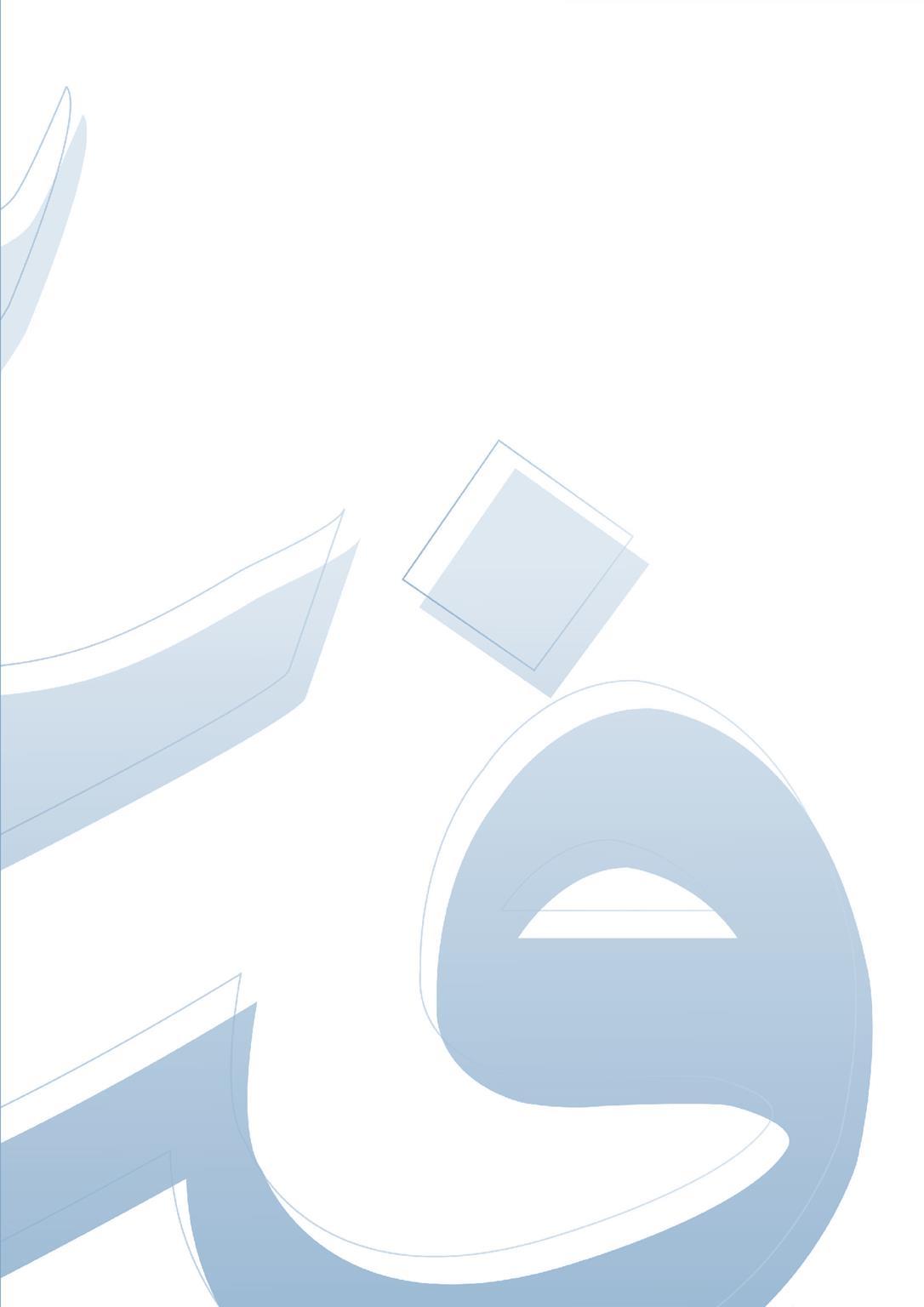
44
Effat
45
Total number of Publications 824 Number of Authors (listed in Scopus) 522 Number of citations or total citation effect 6064 Field Weighted Citation Impact(FWCI 2.28 Average citation effect per paper 7.4 Total number of patents 3 h5 index 30 Metric % Scholarly Output Citations Citations per Publication Field-Weighted Citations Impact International collaboration 48.8% 402 5,005 12.5 3.62 Only national collaboration 6.4% 53 225 4.2 1.37 Only institutional collaboration 33% 272 484 1.8 0.92 Single authorship (no collaboration) 11.8% 97 350 3.6 1.07
University Research Profile 2016 to 2021
Research Collaborations
Conferences Held at Effat University in
2020-2021
Masjid Architecture: Form and Meaning (February 2324, 2021)
Attendance: 640 participants
Conference Presentations: 18 research papers & 7 youth research papers
Publication:A special Springer issue.
Artificial Intelligence: Towards Digital Transformation of Life, Work and Education (January 28, 2021)
Attendance: 736 participants
Conference Presentations: 28 research papers
Publication: Procedia Computer Science and indexed in Scopus database.
Effat Students Scientific Research Forum (February 19, 2020)
Attendance: 53 participants
Publication: 2nd issue of the Effat Student Research Journal ( EURJ, Vol 2)
46
Effat University Research Output 2016
Scientific Research Production of Effat University

From 2014 to 2021 as of 29th Aug 2021
The total number of scientific production: 2047
Total number of scientific output in Scopus: 869
Total number of scientific productions in WoS-ISI: 605
47 99 139 227 214 254 400 404 310 39 14 42 74 98 104 188 262 85 18 13 41 68 91 106 91 103 61 0 50 100 150 200 250 300 350 400 450 لبق 2014 2014 2015 2016 2017 2018 2019 2020 2021 (Aug) Total scientific research outputs Scopus Web of Science Linear (Total scientific research outputs)
- 2021
Publications and Citations-SCOPUS Profile 2016 - 2021
Total Documents over the Years: 869 as of August 2021
Scopus Profile for Five Years 2016-2020: 808 as of August 2021
Citations: 6093 as of April 2021.
Scopus Profile for 2021: 85 as of August 2021

74 89 105 188 258 85 2016 2017 2018 2019 2020 2021
48
Research Areas Classified by Scopus 2016 - 2021
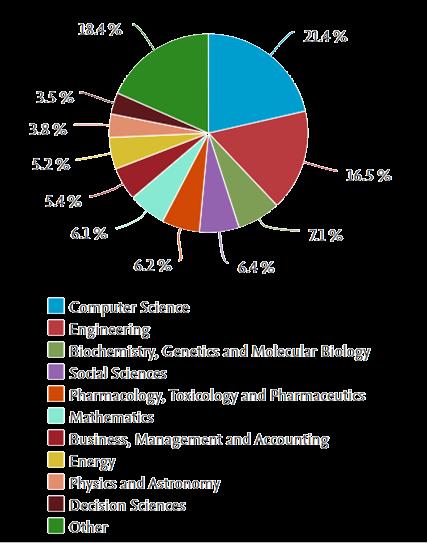

49
Publications and Citations-ISI Profile 2016

- 2021

Total Documents over the years: as 605 in August 21
ISI Profile for five years 2016-2020: 486 as in April
Citations: 3,690 as in August 21.
ISI Profile for 2021: as 61 in August.

50
Research Mapped to the Saudi Vision 2030 Goals (2020-2021)

During 2020-2021 Effat university’s research output was aligned with the Kingdom's research priorities by (99%)
The percentage of scientific research production in the field of economic leadership achieved a remarkable leap at the forefront (33%), outperforming the percentage of information technology (14%) of the number of scientific research production for the year 2020/2021.
51 Environment 2% Building Construction 19% ICT 14% Smart Cities 4% Transport 3% Energy (Renewable) 2% Energy (Oil & Gas) 4% Health (applications) 14% Women Emporment 1% Changing Families 1% Society Empowerment 3% Leading economy 33% Environment Building Construction ICT Smart Cities Transport Energy (Renewable) Energy (Oil & Gas) Health (applications) Women Emporment Changing Families Society Empowerment Leading economy
Effat University Research Centers and Research Labs
Effat College of Engineering
Effat Energy and Technology Research Center
Energy Lab
Virtual Reality Lab Electronics Lab
Biometrics and Sensory Systems Lab
Artificial Intelligence & Cyber Security Lab
Effat College of Architecture and Design
Effat Smart Building Research Center
Environmental Design of Buildings Lab
Urben Design Lab
Materials Testing Lab
Effat College of Business
Business Innovation & Entrepreneurship Research Center
Environmental Students and Entrepreneurship Sustainability Studies Unit
Digital Marketing Unit
Islamic Finance Studies Unit
Effat College of Humanities
Effat Socio-Cultural Studies Research Center

E-Arabaization Unit
Positive Psychology & Wellbeing Lab
Queen Effat Women Studies
52
COMMUNITY ENGAGEMENT

Academic Partnerships
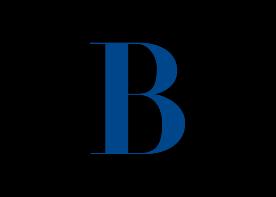
Uzbekistan State World Languages University, is one of the leading Universities in Uzbekistan. It trains highly qualified specialists on more than 20 foreign languages.The collaboration with Effat University will provides unique opportunity to promote Arabic language in Uzbekistan and prepare qualified translators and interpreters.
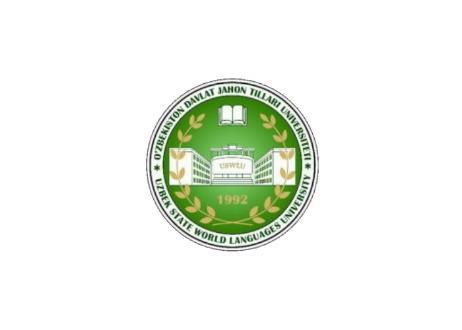
Western Sydney University is one of Effat’s newest partners and many exciting collaborative projects between students and faculty are planned. Like Effat, WSU has a strong English/Arabic translation studies department, and the collaboration will focus not only on the Bachelor program but also on the Master of Science in Translation and Interpreting (MTI).
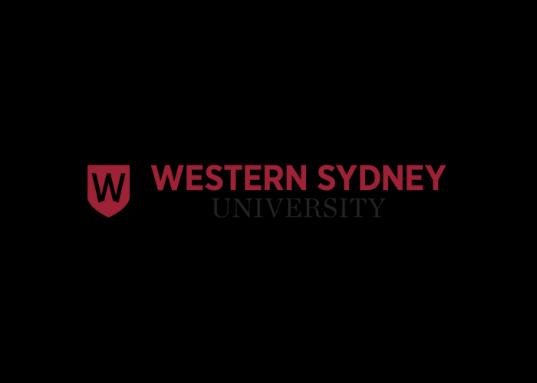
SDA Bocconi is one of the few Business Schools that hold the so-called "triple crown", three of the most prestigious international accreditations: AACSB, EQUIS and AMBA. It is also the only Italian Business School to feature in all the major international rankings, including Financial Times, Forbes, Bloomberg Businessweek and The Economist.
the land of technical innovation, Japan. Tokai collaborates with Effat in ensuring that the curriculum remains up-to-date in this rapidly changing field. Professors from Tokai visit on an annual basis, giving not only lectures and courses relevant to the field, but also insights into the fascinating Japanese culture. Students have also taken research internship courses in Tokai.
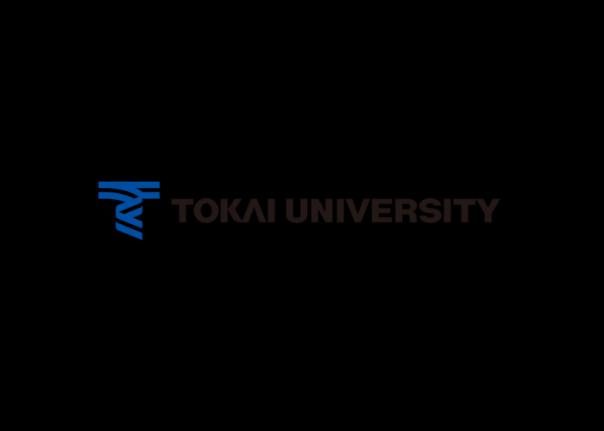
many Saudis have gone abroad to complete their graduate studies. In order to maximize their success in these demanding programs, Effat University has collaborated with Syracuse University to develop a preparatory program to enhance not only their academic English skills but also their analytical and critical thinking skills as well as boosting their academic foundations in their chosen disciplines.


preeminent center for professional training and scholarship of performing, cinematic and emerging media arts. Many of its alumni have achieved great fame and accolades, and are leading creative forces globally. The partnership between Effat University’s CA program and Tisch will add depth and breadth to the program, and a link to the vibrant international community of media specialists.
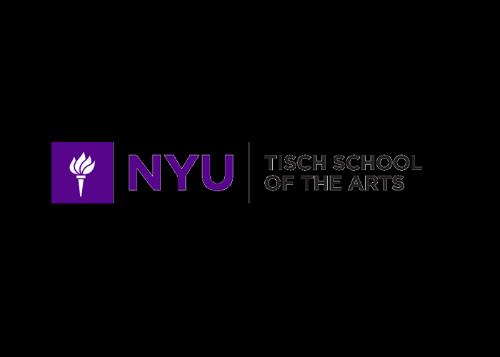
54
Academic Partnerships

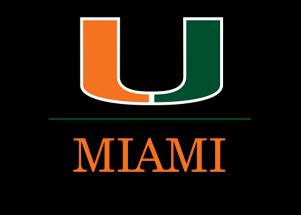
The School of Architecture at Miami University has partnered Effat University since 2009 Miami collaborated with Effat to create the new 5-year curriculum in line with ABET standards. Every summer, Effat students have the opportunity to take courses in Italy at the University of Miami’s facilities in Rome. They are currently also working with Effat to develop a Master’s Program in Urban Design, which will open in the near future.
womens college that has a robust reputation for empowering women and developing leadership skills to produce the leaders of the future. Their mission mirrors that of Effat, which is “to qualify tomorrow’s competitive leaders” Since 2010 the sister institutions have been collaborating to develop new initiatives to strengthen and add value to the co-curricular program at Effat.
In 2005, Effat collaborated with the McDonough School of Business at Georgetown University, Washington DC to establish a department of Business Administration. From this solid foundation, the College of Business was formed in 2009 In 2013, the partnership was renewed, which will further strengthen all the departments, and increase the research capacity of for both students and faculty.


The Pratt School of Engineering and Effat University have been partners since 2004, when they collaborated to develop the Electrical and Computer Engineering (ECE) curriculum and establish the program, the first of its kind for women in Saudi Arabia. Every year, faculty from Duke visit the department to monitor its development and interact with students and faculty. ECE graduates each receive a personal letter of congratulations from the Dean of the Pratt School, Dean Tom Katsouleas.
Auburn University’s undergraduate design program was ranked in June 2016 as one of the top 5 programs in the USA by Design Intelligence, the definitive school ranking for architecture, landscape architecture, interior design and industrial design Effat University’s newest academic partnership will add value to the Design program, ensuring quality and opening up possibilities for collaboration at all levels
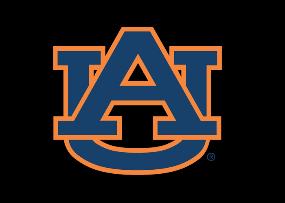
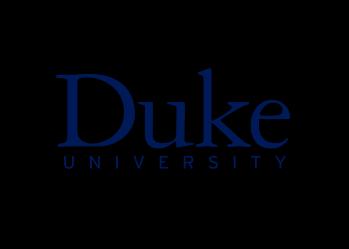
Effat has partnered with the Department of Psychology at Carnegie Mellon University since 2011 for advice and assistance with the Psychology department curriculum development, training and teaching methodologies.

55
Academic Partnerships
Virginia Tech takes a hands on, engaging approach to education, preparing scholars to be leaders in their fields and communities. As the commonwealth’s most comprehensive university and its leading research institution, Virginia Tech offers 275 undergraduate and graduate degree programs to more than 33,000 students and manages a research portfolio of more than $502 million. The Effat English Academy collaborates with the Virginia Tech Language and Culture Institute, whose mission is to promote intercultural competence and understanding by connecting people across borders and disciplines. They aim to inspire globally minded students, scholars, and professionals through transformative learning, innovative collaborations, and cross-cultural engagement.
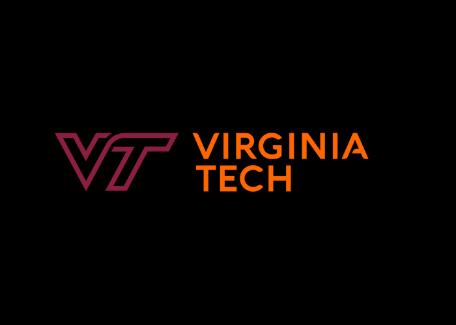
KENT State University, USA collaborates with Effat University in Students Summer School, studying abroad, joint conferences,and Albalad project


The mission of University of the People is to offer affordable, quality, fully online, degreegranting educational programs to any qualified student. UoPeople believes that education plays a fundamental role in strengthening respect for human rights and fundamental freedoms, and in promoting understanding and tolerance. Our partnership offers students from both institutions the chance to pursue a variety of fields at the undergraduate level, as well as at the graduate level. Students will be able to transfer between the two universities in compatible programs.
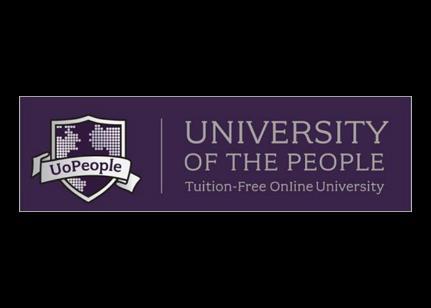
56




Vision
To become the best provider of interdisciplinary education in the fields of humanities one which is worthy of the 21st century and applicable to society through international perspective, broad expertise, awareness of history and institutional values, pride in traditions, sense of community, and rational optimism for the future
Mission
To provide high quality interdisciplinary education that adheres to Effat University’s core values of being committed to the ethical use of science and knowledge and striving to offer sound community leadership. Our graduates will excel in their respective fields through their talents to analyze and think thoroughly, solve problems creatively, and communicate effectively




Departments
English and Translation Department
• Bachelor of Science in English and Translation.
• Master of Science in Translation and Interpreting Psychology Department
• Bachelor of Science in Psychology
Enrolment by Program

Degree Fall 2019 Spring 2020 Fall 2020 Spring 2021 Undergraduate 179 135 151 133 Postgraduate 16 14 16 15 Student Enrolment 59 Student Profile Program Semester Continuing Registered Students New Registered Students Total Registered Students Leave of Absence Pending Graduation due to IC/IP Total Enrolled Students English &Translation (E&T) Fall 2019 70 9 79 2 0 81 Spring 2020 50 2 52 2 0 54 Fall 2020 48 7 55 2 0 57 Spring 2021 41 1 42 1 1 44 Psychology (PSY) Fall 2019 73 23 96 1 1 98 Spring 2020 79 0 79 2 0 81 Fall 2020 68 25 93 1 0 94 Spring 2021 81 4 85 4 0 89 Master of Science in Translation and Interpreting (MTI) Fall 2019 7 9 16 0 0 16 Spring 2020 13 0 13 1 0 14 Fall 2020 8 7 15 0 1 16 Spring 2021 15 0 15 0 0 15
*Including Number of Students in Foundation Level, Leave of Absence, and Pending Graduation Students. Academic Year 2020-2021 compared to 2019-2020


60 Historical Student Enrolment by Program

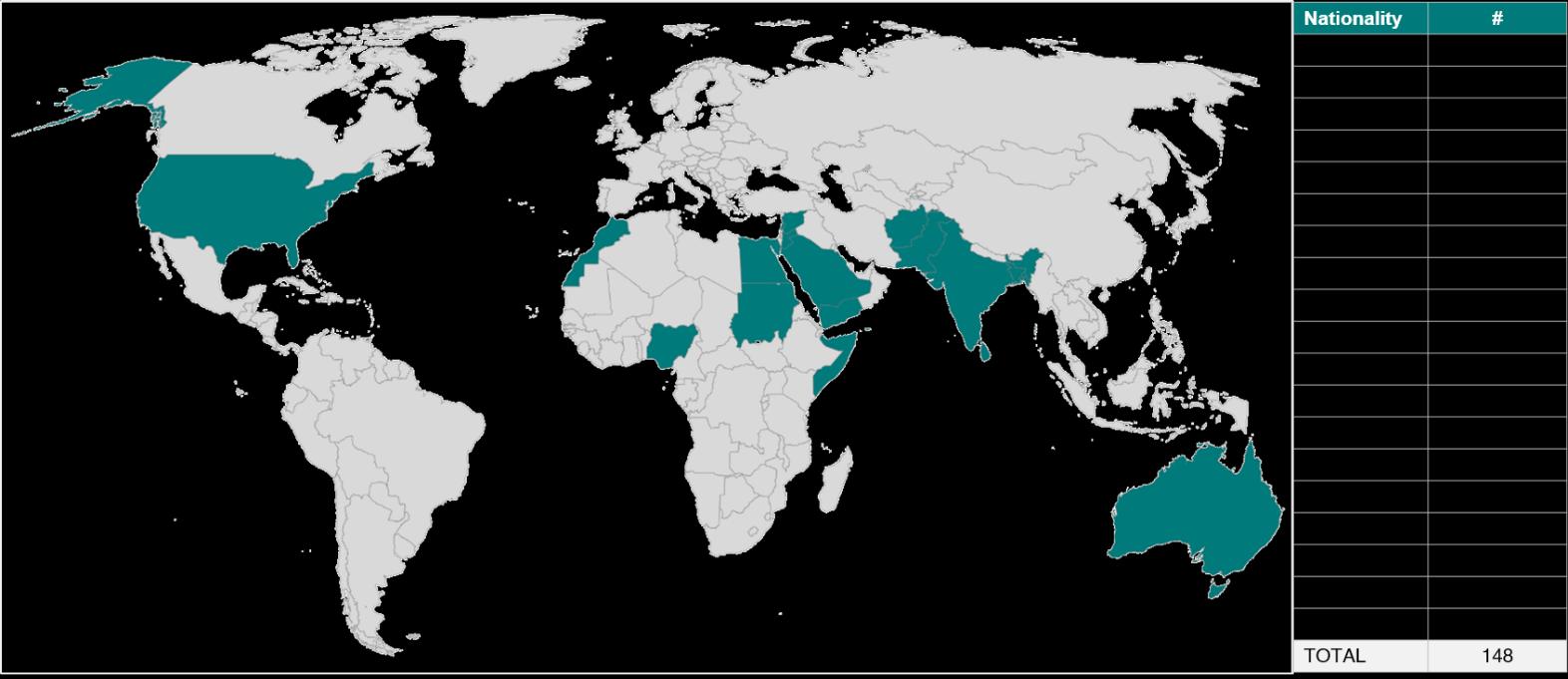
2019 - 2020 2020 - 2021 Saudi Non-Saudi Saudi Non-Saudi 90 59 97 51 61 Enrolment by Internationalization Academic Year 2020-2021 compared to 2019-2020
Graduates
Historical Number of


62
Alumni Status

Overall Effat College of Humanities Alumnae Status up to Fall 2020 Alumnae Status Number Percentage Participation Rate Employability Rate Working 328 50% 51% 67% Studying 39 6% 8% 08% Seeking Job 121 19% 17% 25% Total 488 Not Reachable 97 15% Not Workingby Choice 64 10% 11% Deceased 1 Overall Total 650 87% 75% 63
61% 10% 29% PSY Alumnae Status 2004-Fall 2020 Working Studying Seeking Job 68% 6% 26% E&T Alumnae Status 2003-Fall 2020 Working Studying Seeking Job 93% 7% MTI Alumnae Status 2017-Fall 2020 Working Studying Seeking Job
Alumni Profile
Faculty Rank

Saudi vs Non-Saudi
Full-time vs Part-time
Department Full Time Part Time # % # % English & Translation Department 6 55% 5 45% Psychology Department 2 33% 4 67% General Education Program 8 73% 3 27% Department Saudi Non-Saudi # % # % English & Translation Department 0 0% 11 100% Psychology Department 3 50% 3 50% General Education Program 1 9% 10 91% Department Professor Associate Professor Assistant Professor Lecturer Instructor # % # % # % # % # % English & Translation Department 2 18% 2 18% 6 55% 1 9% 0 0% Psychology Department 0 0% 1 17% 2 33% 3 50% 0 0% General Education Program 0 0% 1 9% 7 64% 0 0% 3 27% 64
Faculty Profile

Technology Equipped Labs Number Capacity # of Projectors Specialized Computer Labs-PSY 2 16 2 Specialized Computer Labs-E&T 1 18 1 Specialized Computer Labs-MTI 1 3 1 Total Number of Specialized Computer Labs 4 37 4 Number of General Access Lab 1 26 Printers Number Ratio Number of Printers for Students 2 99:1 Program No. of Students Print Books eBooks Total Books Ratio Book/Student E&T 44 4701 11530 16231 369 PSY 89 4719 8001 12720 143 MTI 15 40 8503 8543 570 Program Databases E&T Encyclopedia Britannica Encyclopedia of Arabic Language and Linguistics Handbook of Translation Studies PSY ProQuest Psychology PsycArticles Ebrary Ebook Central MTI Encyclopedia Britannica Encyclopedia of Arabic Language and Linguistics Handbook of Translation Studies 65 Labs
Library Database Subscription Facilities Profile
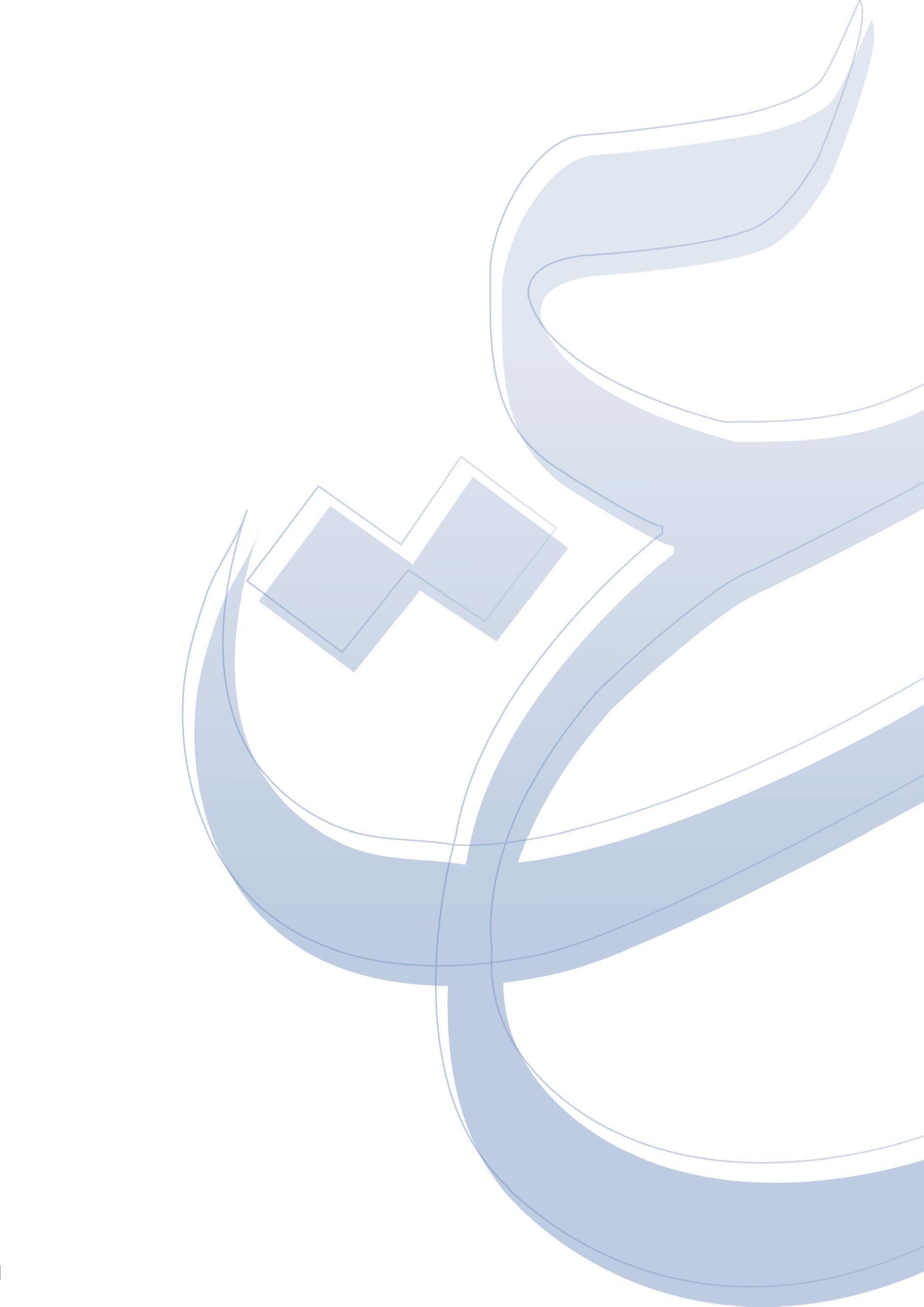
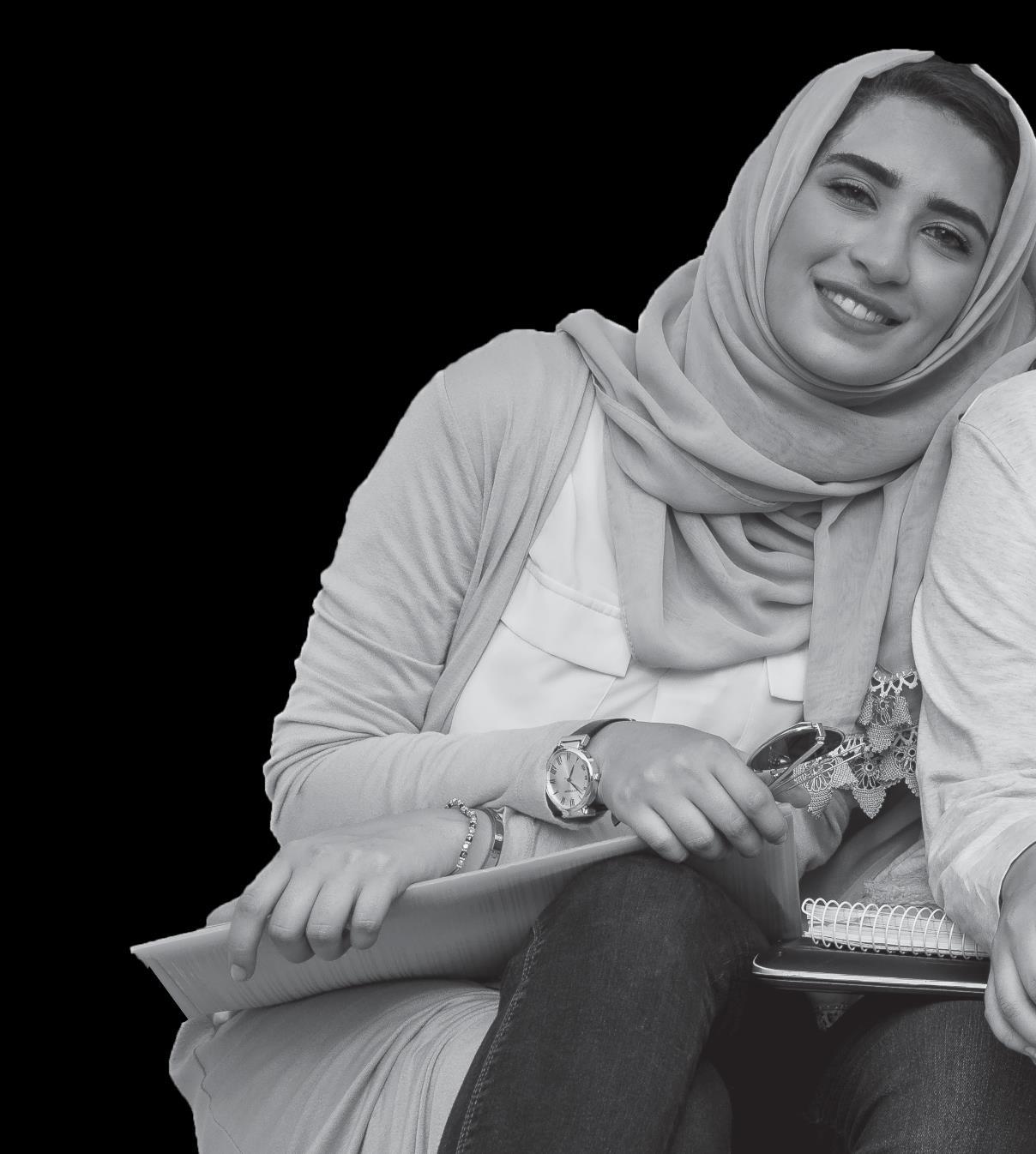
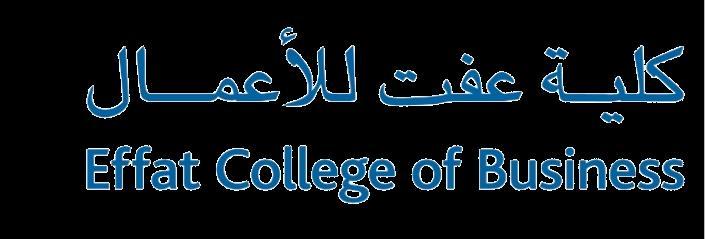


Vision
To be recognized nationally and internationally as a school of reference in business education and to actively support the socio economic growth of the Kingdom through innovation, excellence, professionalism and the promotion of the entrepreneurial spirit.
Mission
To maintain academic excellence, offer a comprehensive learning experience, create and disseminate impactful knowledge and intellectual contributions in order to qualify innovative business leaders, creative entrepreneurs and distinguished scholars who will effectively contribute to the socio-economic growth of the Kingdom

Departments
Finance Department
• Bachelor of Science in Finance.

• Master of Science in Finance.
Entrepreneurship Department

• Bachelor of Science in Entrepreneurship.
Human Resources Management Department
• Bachelor of Science in Human Resources Management
Marketing Department
• Bachelor of Science in Marketing
Operation and Information Management Department
• Bachelor of Supply Chain Management
67
Enrolment by Program

Student Enrolment Degree Fall 2019 Spring 2020 Fall 2020 Spring 2021 Undergraduate 293 233 270 246 Postgraduate 21 21 29 25 Student Profile Program Semester Continuing Registered Students New Registered Students Total Registered Students Leave of Absence Pending Graduation due to IC/IP Total Enrolled Students Entrepreneurship (ENTP) Fall 2019 38 11 49 1 0 50 Spring 2020 41 2 43 0 0 43 Fall 2020 31 16 47 2 0 49 Spring 2021 37 1 38 0 0 38 Finance (FIN) Fall 2019 61 13 74 0 4 78 Spring 2020 56 6 62 0 1 63 Fall 2020 43 20 63 3 3 69 Spring 2021 59 4 63 0 0 63 Human Resource Management (HRM) Fall 2019 36 4 40 2 1 43 Spring 2020 27 0 27 1 0 28 Fall 2020 16 14 30 2 0 32 Spring 2021 31 0 31 0 0 31 Marketing (MKT) Fall 2019 57 10 67 2 1 71 Spring 2020 58 1 59 1 0 60 Fall 2020 47 23 70 3 0 73 Spring 2021 70 1 71 2 0 73 Supply Chain Management (SCM) Fall 2019 42 5 47 4 0 51 Spring 2020 34 2 36 1 2 39 Fall 2020 30 14 44 0 3 47 Spring 2021 38 2 40 0 1 41 Masters of Science in Finance (MSF) Fall 2019 7 14 21 0 0 21 Spring 2020 20 1 21 0 0 21 Fall 2020 13 14 27 1 1 29 Spring 2021 24 0 24 1 0 25
68 *Including Number of Students in Foundation Level, Leave of Absence, and Pending Graduation Students.


69 Historical Student Enrolment by Program

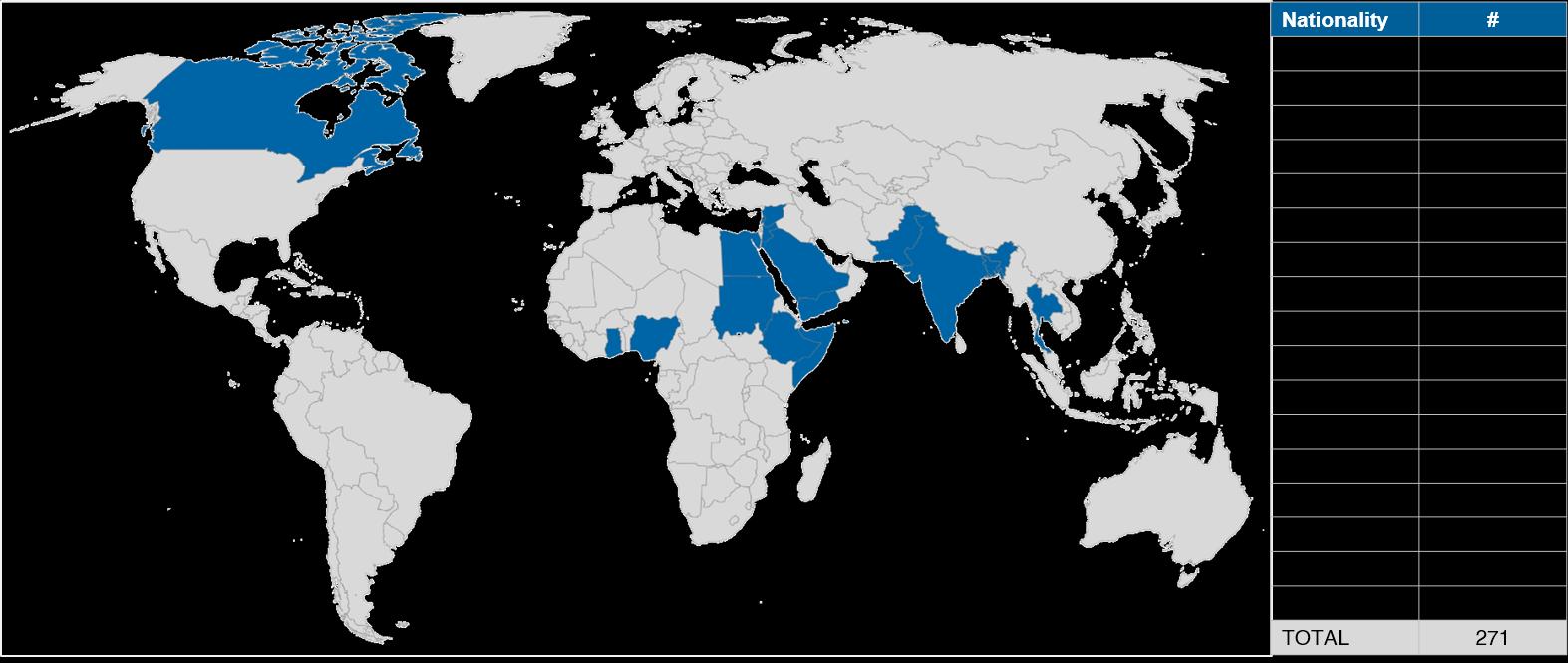
2019 - 2020 2020 - 2021 Saudi Non-Saudi Saudi Non-Saudi 185 69 188 83 70 Enrolment
Internationalization
by
Graduates
Historical Number of


71

Overall Alumni Status up to Fall 2020 Alumnae Status Number Percentage Participation Rate Employability Rate Working 543 52% 54% 69% Studying 43 4% 5% 6.0% Seeking Job 198 19% 20% 25% Total 784 Not Reachable 202 19% Not Workingby Choice 55 5% 6% Overall Total 1041 75% 72
75% 10% 15% MKT Alumni Status 2009-Fall 2020 Working Studing Seeking Job 67% 4% 29% FIN Alumni Status 2010- Fall 2020 Working Studying Seeking Job
Alumni Status Alumni Profile
Alumni Status

63% 6% 31% SCM Alumni Status 2011- Fall 2020 Working Studying Seeking Job 66% 7% 27% ENTP Alumni Status 2010- Fall 2020 Working Studying Seeking Job 69% 5% 26% HRM Alumni Status 2009- Fall 2020 Working Studying Seeking Job 80% 2% 18% MSF Alumni Status 2012- Fall 2020 Working Studying Seeking Job 73
Faculty Rank

Saudi vs Non-Saudi
Full-time vs Part-time
Department Full Time Part Time # % # % Supply Chain Management Department 3 75% 1 25% Human Resources Management Department 3 100% 0 0% Marketing Department 3 100% 0 0% Entrepreneurship Department 2 100% 0 0% Finance Department 5 83% 1 17% Department Saudi Non-Saudi # % # % Supply Chain Management Department 1 25% 3 75% Human Resources Management Department 2 67% 1 33% Marketing Department 0 0% 3 100% Entrepreneurship Department 1 50% 1 50% Finance Department 1 17% 5 83% Department Professor Associate Professor Assistant Professor Lecturer Instructor # % # % # % # % # % Supply Chain ManagementDepartment 0 0% 2 50% 2 50% 0 0% 0 0% Human Resources Management Department 0 0% 0 0% 3 100% 0 0% 0 0% Marketing Department 1 33% 0 0% 2 67% 0 0% 0 0% Entrepreneurship Department 0 0% 1 50% 1 50% 0 0% 0 0% Finance Department 1 17% 0 0% 4 66% 1 17% 0 0% 74
Faculty
Profile

Technology Equipped Labs Number Capacity # of Projectors Specialized Computer Labs-MHR 0 0 Specialized Computer Labs-MKT 0 0 Specialized Computer Labs-ENTP 0 0 Specialized Computer Labs-OPIM 1 26 1 Specialized Computer Labs-FIN 1 26 1 Specialized Computer Labs-MSF Total Number of Specialized Computer Labs 2 52 2 Number of General Access Lab 1 26 Printers Number Ratio Number of Printers for Student 3 91:1 Program No. of Students Print Books eBooks Total Books Ratio Book/Student ENTP 38 593 4348 4941 130 FIN 63 671 5223 5894 94 HRM 31 796 2098 2894 93 MKT 73 649 4190 4839 66 SCM 41 697 5334 6031 147 MSF 25 75 5223 5298 212 Program Databases ENTP - OPIM - HRM - FIN - MKT - MSF ABI INFORM Business Source Ultimate Emerald 75 Labs Facilities Profile Database Subscription Library

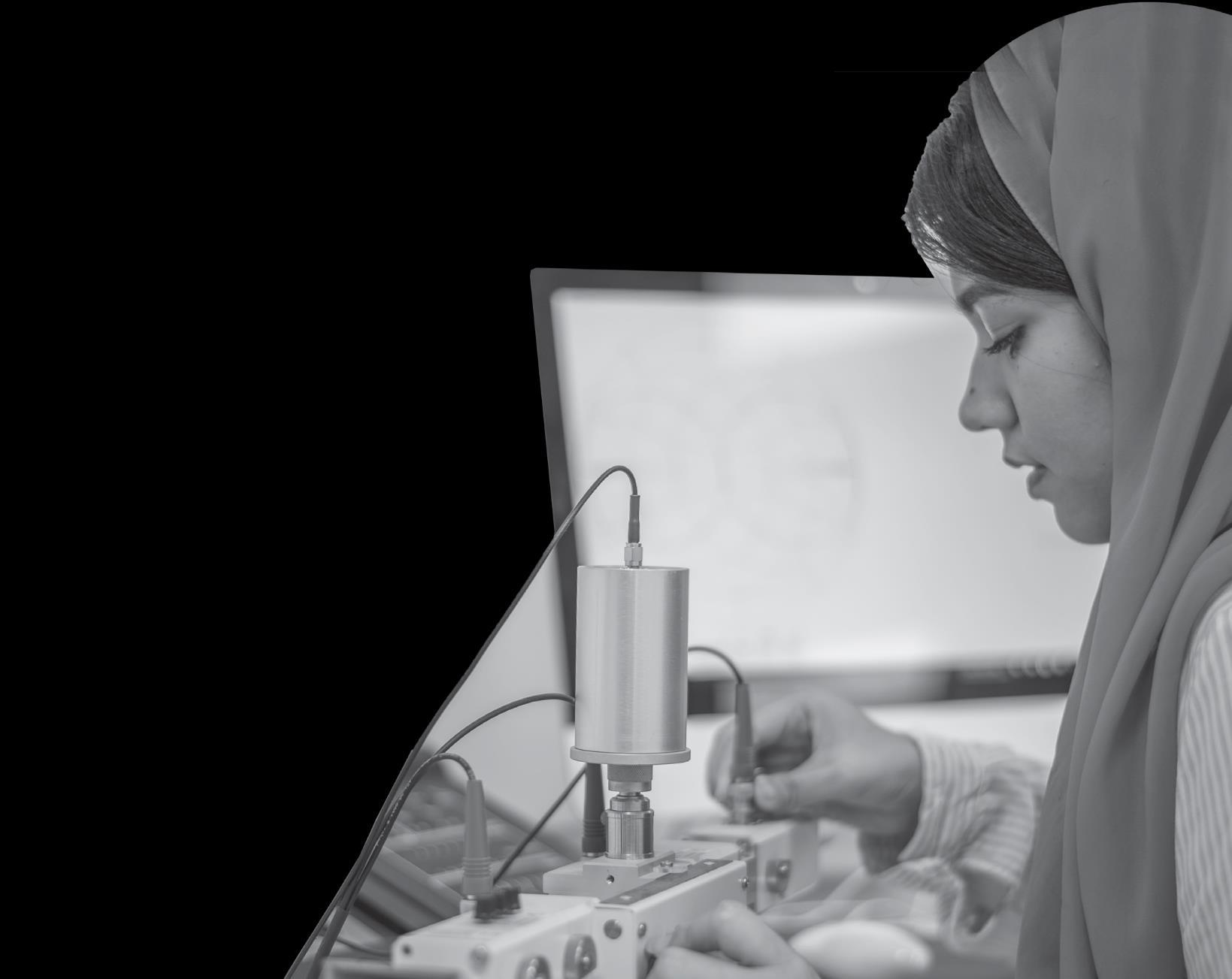

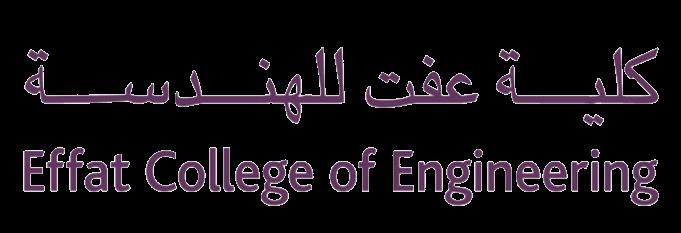

Vision
To be recognized as a national leader in providing quality engineering education centered on innovative research and transfer of knowledge and technology for the benefit of society.
Mission Departments
Effat College of Engineering will continue to lead the education of women in engineering in a multidisciplinary and research driven environment, and equip them with comprehensive technical and analytical skills necessary for effectively contributing to national and international development and technological advancement
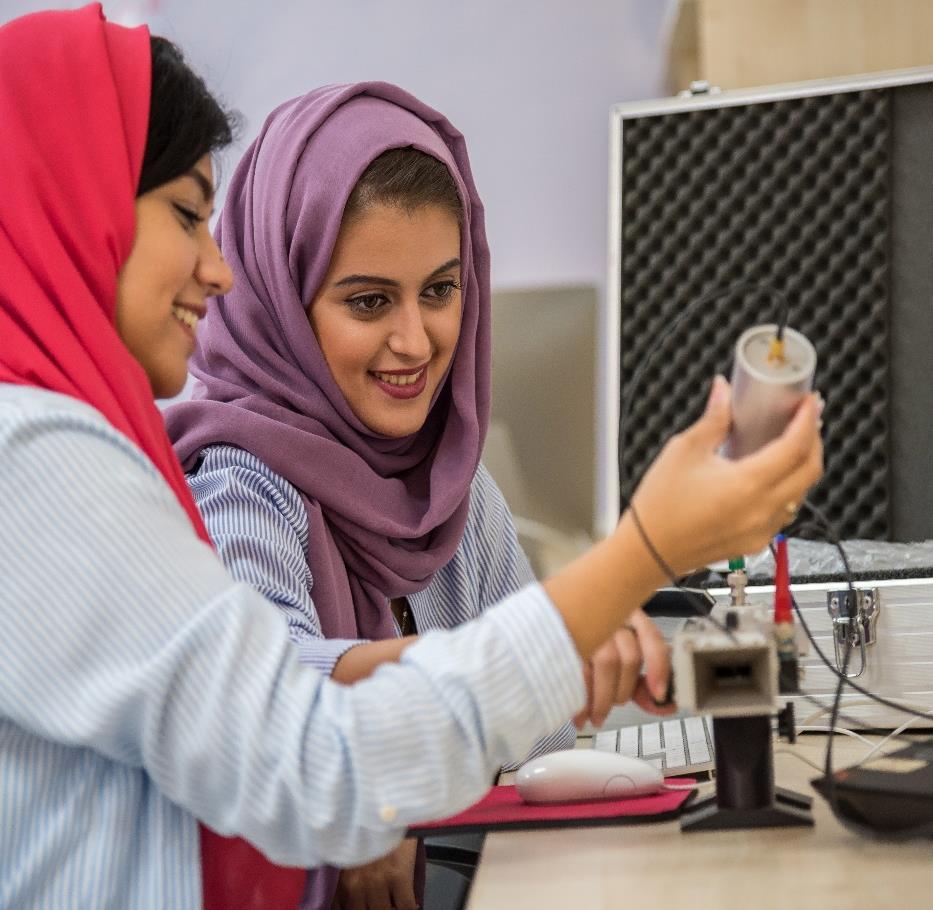

Electrical and Computer Engineering Department
• Bachelor of Science in Electrical and Computer Engineering
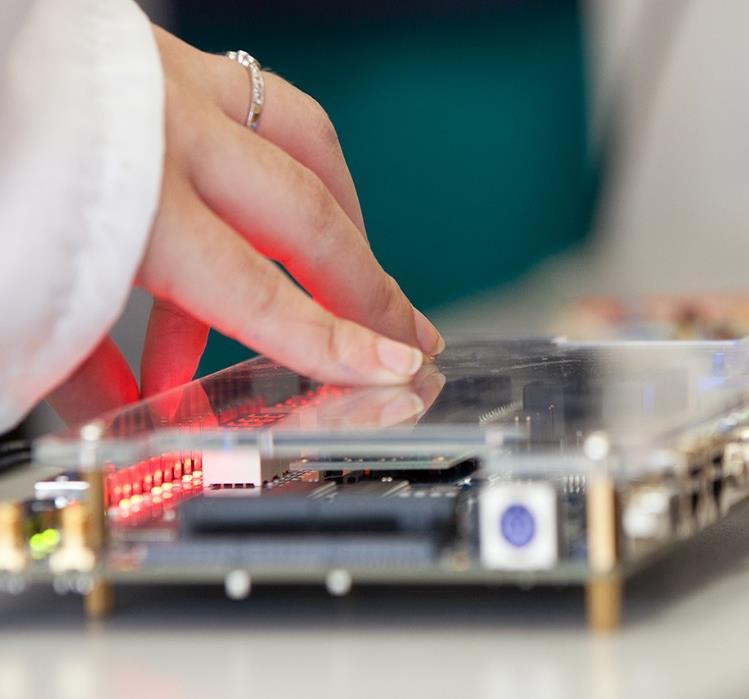
• Master of Science in Energy Engineering
Computer Science Department
• Bachelor of Science in Computer Science
Enrolment by Program

Degree Fall 2019 Spring 2020 Fall 2020 Spring 2021 Undergraduate 211 173 218 209 Postgraduate 16 15 18 18 78 Student Enrolment Student Profile Program Semester Continuing Registered Students New Registered Students Total Registered Students Leave of Absence Pending Graduation due to IC/IP Total Enrolled Students Computer Science (CS) Fall 2019 36 9 45 0 0 45 Spring 2020 37 1 38 0 1 39 Fall 2020 48 69 117 2 0 119 Spring 2021 102 12 114 3 0 117 Electrical and Computer Engineering (ECE) Fall 2019 93 18 111 1 0 113 Spring 2020 87 2 89 1 1 91 Fall 2020 60 24 84 2 3 89 Spring 2021 80 4 84 2 0 86 Information Systems (IS) Fall 2019 42 8 50 3 0 53 Spring 2020 37 3 40 2 1 43 Fall 2020 10 0 10 0 0 10 Spring 2021 5 0 5 0 1 6 Masters of Science in Energy Engineering (MSEE) Fall 2019 8 8 16 0 0 16 Spring 2020 14 1 15 0 0 15 Fall 2020 9 9 18 0 0 18 Spring 2021 17 0 17 1 0 18
*Including Number of Students in Foundation Level, Leave of Absence, and Pending Graduation Students.


79 Historical Student Enrolment by Program


2019 - 2020 2020 - 2021 Saudi Non-Saudi Saudi Non-Saudi 134 54 134 93 80 Enrolment by Internationalization
Graduates
Historical Number of
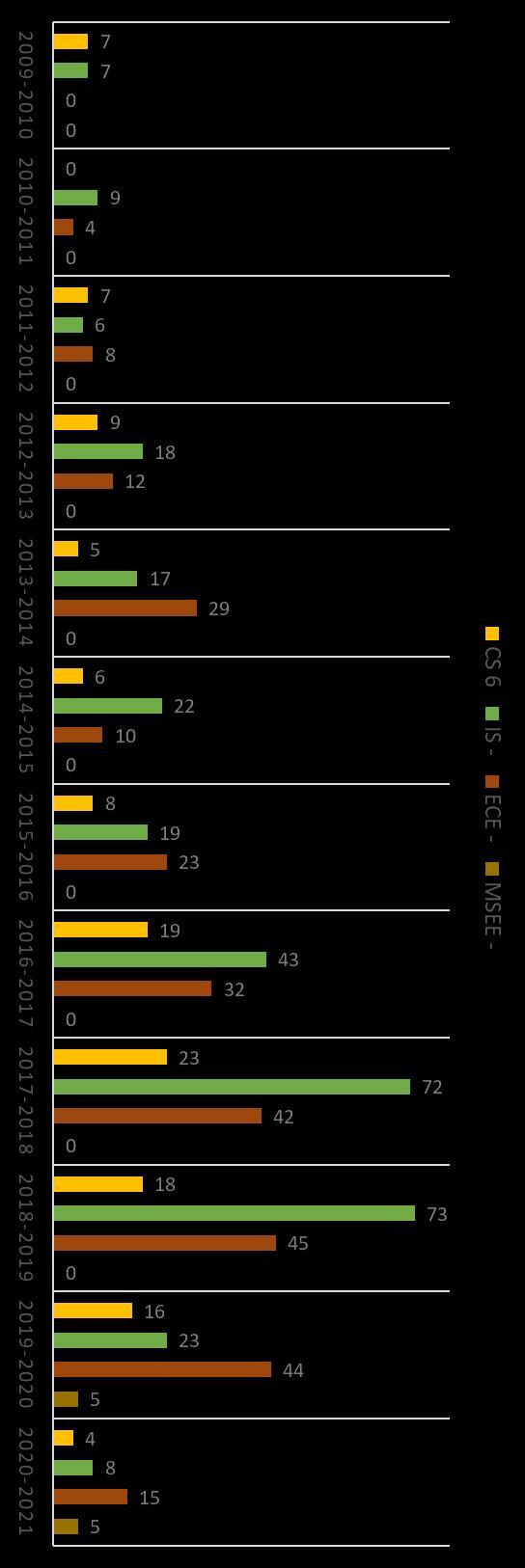
81

Overall Alumni Status up to Fall 2020 Alumnae Status Number Percentage Participation Rate Employability Rate Working 436 56% 58% 70% Studying 42 5% 7% 7% Seeking Job 144 19% 20% 23% Total 622 Not Reachable 108 14% Not Workingby Choice 42 5% 5% Deceased 1 Overall Total 773 90% 77% 82
66% 4% 30% IS Alumni Status 2004-Fall 2020 Working Studying Seeking Job 73% 10% 17% ECE Alumni Status 2011-Fall 2020 Working Studying Seeking Job 73% 8% 19% CS Alumni Status 2003-Fall 2020 Working Studying Seeking Job
Alumni Status Alumni Profile
Saudi vs Non-Saudi
Full-time vs Part-time

Department Professor Associate Professor Assistant Professor Lecturer Instructor # % # % # % # % # % Electrical and Computer Engineering Department 2 29% 1 14% 4 57% 0 0% 0 0% Computer Sciences / InformationSystems Department 1 17% 0 0% 5 83% 0 0% 0 0% Natural Sciences, Mathematics, and Technology Unit 1 13% 2 25% 4 50% 1 12% 0 0% Department Full Time Part Time # % # % Electrical and Computer Engineering Department 5 71% 2 29% Computer Sciences / InformationSystems Department 6 100% 0 0% Natural Sciences, Mathematics, and Technology Unit 6 75% 2 25% Department Saudi Non-Saudi # % # % Electrical and Computer Engineering Department 0 0% 7 100% Computer Sciences / InformationSystems Department 2 33% 4 67% Natural Sciences, Mathematics, and Technology Unit 3 38% 5 62% 83
Faculty Rank
Faculty Profile

Technology Equipped Labs Number Capacity # of Projectors Specialized Computer Labs - CS 3 78 3 Specialized Computer Labs - IS 3 78 3 Specialized Computer Labs - ECE 7 86 7 Specialized Computer Labs - MSEE 11 14 11 Total Number of Specialized Computer Labs 24 256 24 Number of General Access Lab 1 26 Printers Number Ratio Number of Printer for Student 3 88:1 Program No. of Students Print Books eBooks Total Books Ratio Book/Student ECE 86 1569 14338 15907 185 CS 117 331 24791 25122 215 MSEE 18 132 1204 1336 74 Program Databases ECE IEEE ProQuest Computing O’reilly Safari CS IEEE ProQuest Computing O’reilly Safari MSEE Environment Complete ( Ebsco) IEEE One Petro ScienceDirect SciTech Premium Collection (ProQuest) 84 Labs Facilities Profile
Database Subscription
Library
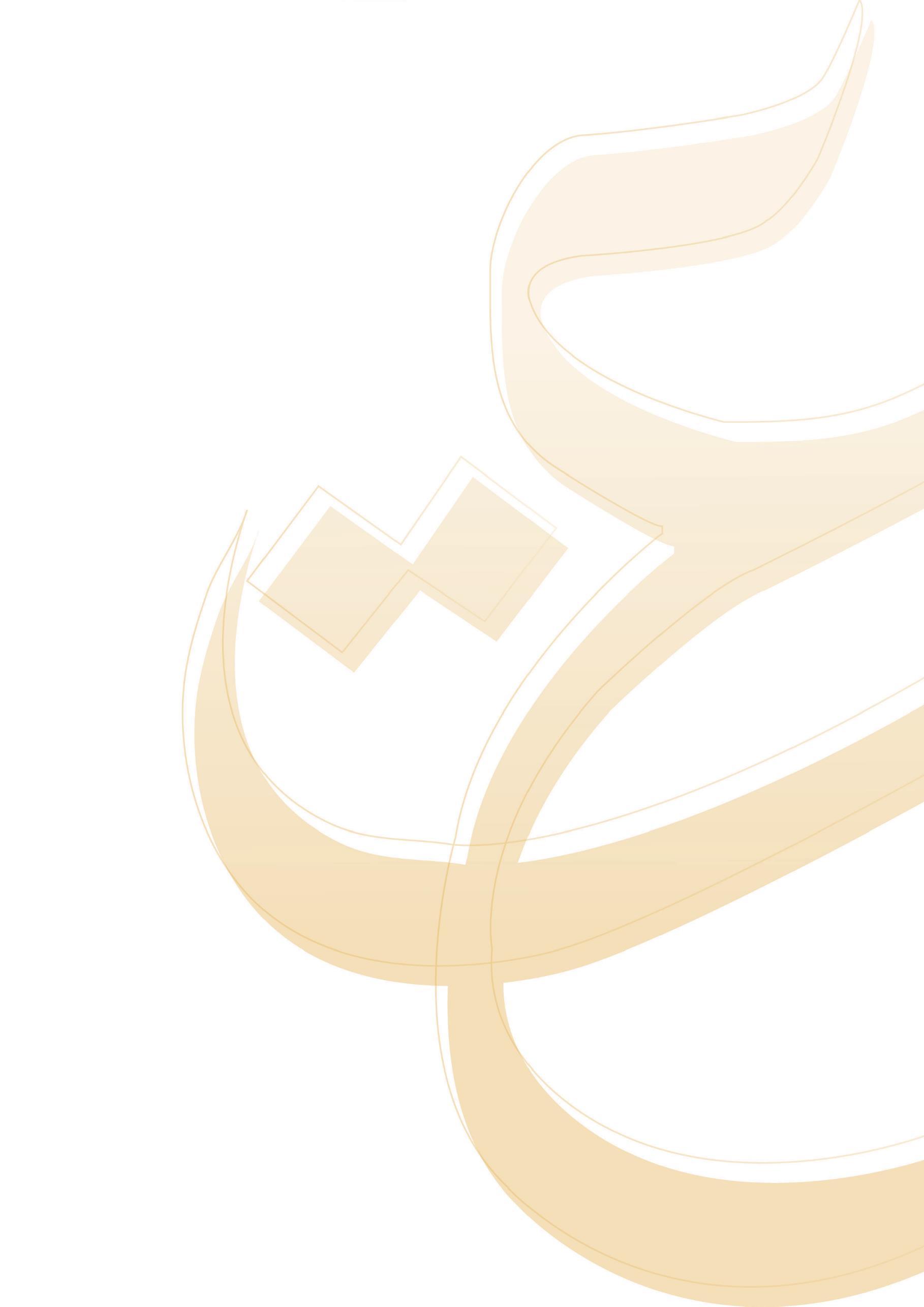
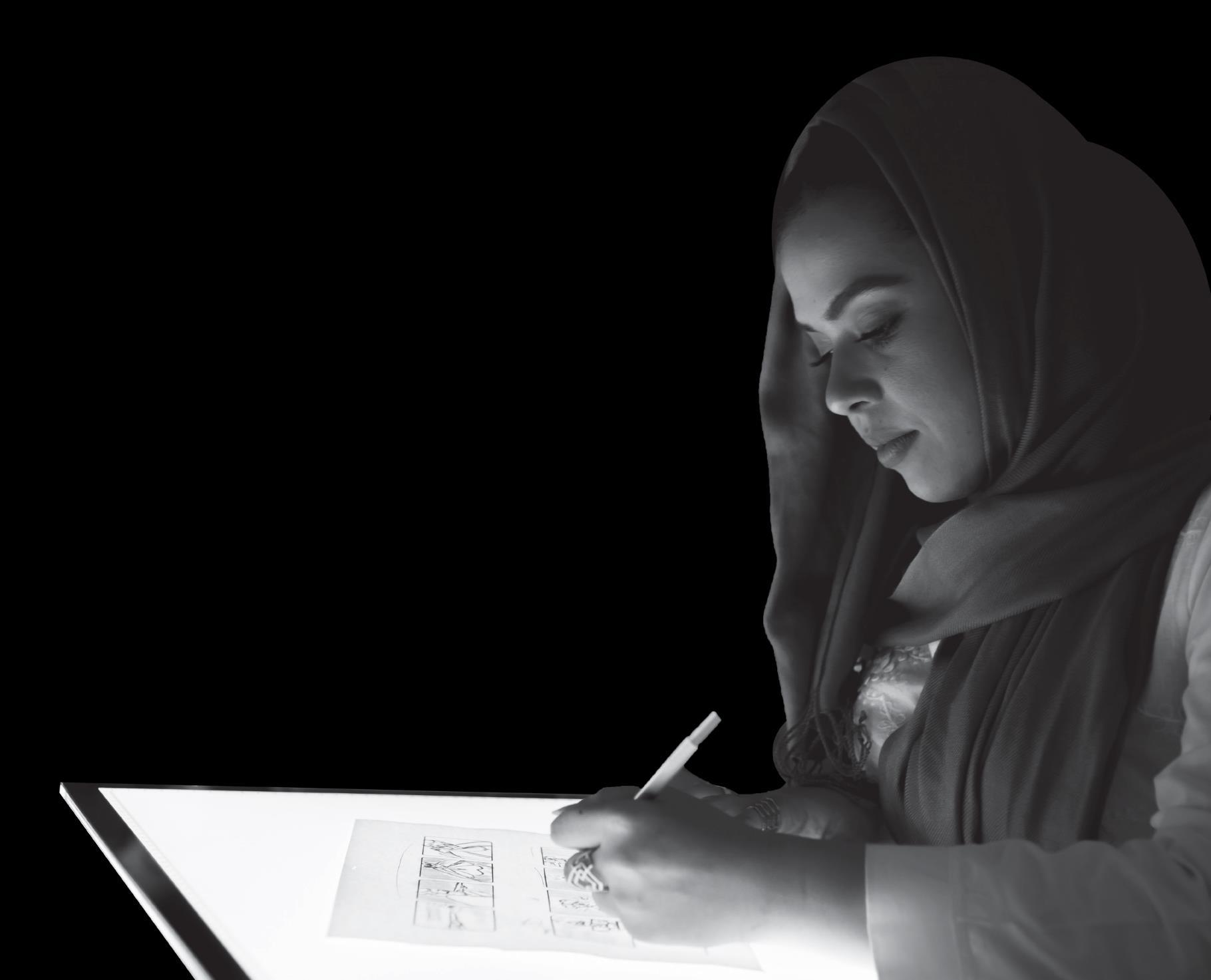



Vision
Effat College of Architecture and Design aspires to be a hub for creative and innovative scholars of faculty and students who contribute through artistic, innovative, and sustainable solutions to the local and global community

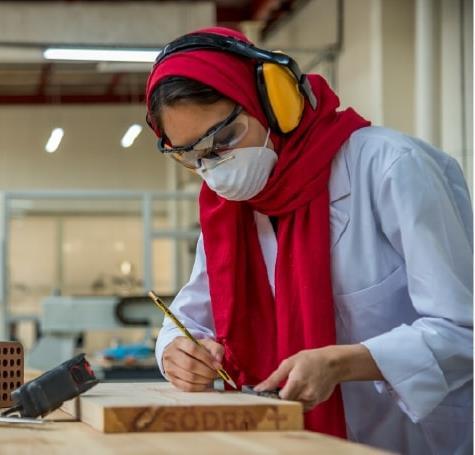

Mission
Effat College of Architecture and Design graduates creative and effective leaders who can compete nationally and internationally by integrating core values into the education of architecture, design, and visual media and combining academic study and practicum experience
Departments
Architecture Department
• Bachelor of Science in Architecture
• Master of Science in Urban Design
Design Department
• Bachelor of Science in Design
Cinematic Art Department
• Bachelor of Science in CinematicArts
86
Enrolment by Program

Degree Fall 2019 Spring 2020 Fall 2020 Spring 2021 Undergraduate 556 453 442 395 Postgraduate 24 23 34 29 87 Student Enrolment Student Profile Program Semester Continuing Registered Students New Registered Students Total Registered Students Leave of Absence Pending Graduation due to IC/IP Total Enrolled Students Architecture (ARCH) Fall 2019 351 31 382 4 6 392 Spring 2020 305 2 307 6 0 313 Fall 2020 191 62 253 7 3 263 Spring 2021 209 10 219 6 0 225 Design (DESN) Fall 2019 77 15 92 0 0 92 Spring 2020 76 6 82 1 0 83 Fall 2020 55 49 104 1 2 107 Spring 2021 92 11 103 3 1 107 Cinematic Arts (CA) Fall 2019 54 16 70 1 1 72 Spring 2020 46 4 50 2 5 57 Fall 2020 38 22 60 2 10 72 Spring 2021 60 3 63 0 0 63 Masters of Science in Urban Design (MSUD) Fall 2019 8 16 24 0 0 24 Spring 2020 23 0 23 0 0 23 Fall 2020 16 18 34 0 0 34 Spring 2021 28 0 28 1 0 29
*Including Number of Students in Foundation Level, Leave of Absence, and Pending Graduation Students.


Historical Student Enrolment by Program 88

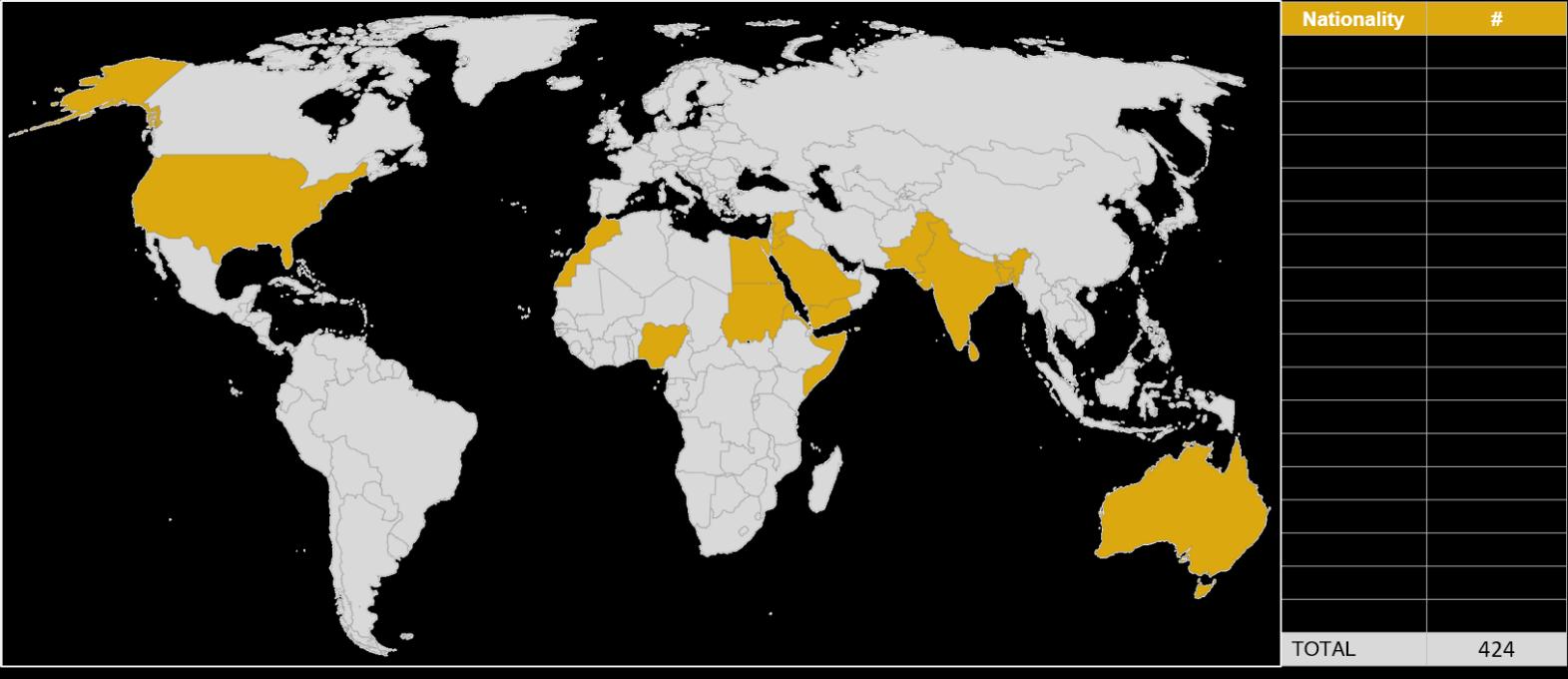
2019 - 2020 2020 - 2021 Saudi Non-Saudi Saudi Non-Saudi 381 95 286 138 89
Internationalization
Enrolment by

90
2 11 3 20 33 30 34 70 61 102 217 184 74 14 29 41 20 16 70 36 15 2 4 7 5 8 8 20082009 20092010 20102011 20112012 20122013 20132014 20142015 20152016 20162017 20172018 20182019 20192020 20202021 Architecture Cinematic Arts Design MSUD
Historical Number of Graduates
Alumni Status

Overall Alumnae Status up to Fall 2020 Alumnae Status Number Percentage Participation Rate Employability Rate Working 466 44% 49% 61% Studying 32 3% 4% 4% Seeking Job 265 25% 20% 35% Total 763 Not Reachable 268 25% Not Workingby Choice 30 3% 3% Deceased Overall Total 1061 76% 65% 91
59% 5% 36% ARCH Alumni Status 2009-Fall 2020 Working Studying Seeking Job 59% 2% 39% DESN Alumni Status Fall 2020 Working Studying Seeking Job 90% 10% MSUD Alumni Status 2016- Fall 2020 Working Studying Seeking Job 72% 4% 24% CA Alumni Status 2017-Fall 2020 Working Studying Seeking Job
Alumni Profile
Saudi vs Non-Saudi
Full-time vs Part-time

Department Professor Associate Professor Assistant Professor Lecturer Instructor # % # % # % # % # % Design Department 0 0% 0 0% 2 33% 2 33% 2 33% Cinematic Arts 1 20% 0 0% 1 20% 2 40% 1 20% Architecture Department 6 33% 2 11% 2 11% 4 22% 4 22% Department Full Time Part Time # % # % Design Department 3 50% 3 50% Cinematic Arts 4 80% 1 20% Architecture Department 11 61% 7 39% Department Saudi Non-Saudi # % # % Design Department 1 17% 5 83% Cinematic Arts 0 0% 5 100% Architecture Department 2 11% 16 89% 92
Faculty Rank Faculty Profile

Technology Equipped Labs Number Capacity # of Projectors Specialized Computer Labs-ARCH 5 80 5 Specialized Computer Labs-DESN 4 47 4 Specialized Computer Labs-CA 8 83 8 Specialized Computer Labs-MSUD(Environment Lab COAD2015) 1 1 1 Total Number of Specialized Computer Labs 18 211 18 Number of General Access Lab 2 38 Printers Number Ratio Number of Printer for Student 8 89:1 Program No. of Students Print Books eBooks Total Books Ratio Book/Student ARCH 225 3418 5675 9093 40 DESN 107 752 4326 5078 47 CA 63 409 4359 4768 76 MSUD 29 25 2105 2130 73 Program Databases ARCH Art & Architecture Complete Environment Complete ( Ebsco) Green File DESN Art & Architecture Complete Environment Complete ( Ebsco) Green File CA Art & Architecture Complete Communication & Mass Media Complete The Arts ( Proquest ) O’reilly Safari MSUD Art & Architecture Complete Environment Complete ( Ebsco) Green File 93
Labs Facilities Profile Database Subscription Library
Effat University
PO Box 34689
Jeddah 21478
Saudi Arabia
Telephone: +966 92 000 3331
Fax: +966 12 637 7447

Email: effatuniversity@effatuniversity.edu.sa


www.effatuniversity.edu.sa




























 Effat College of Engineering
Effat College of Engineering
























































































































































